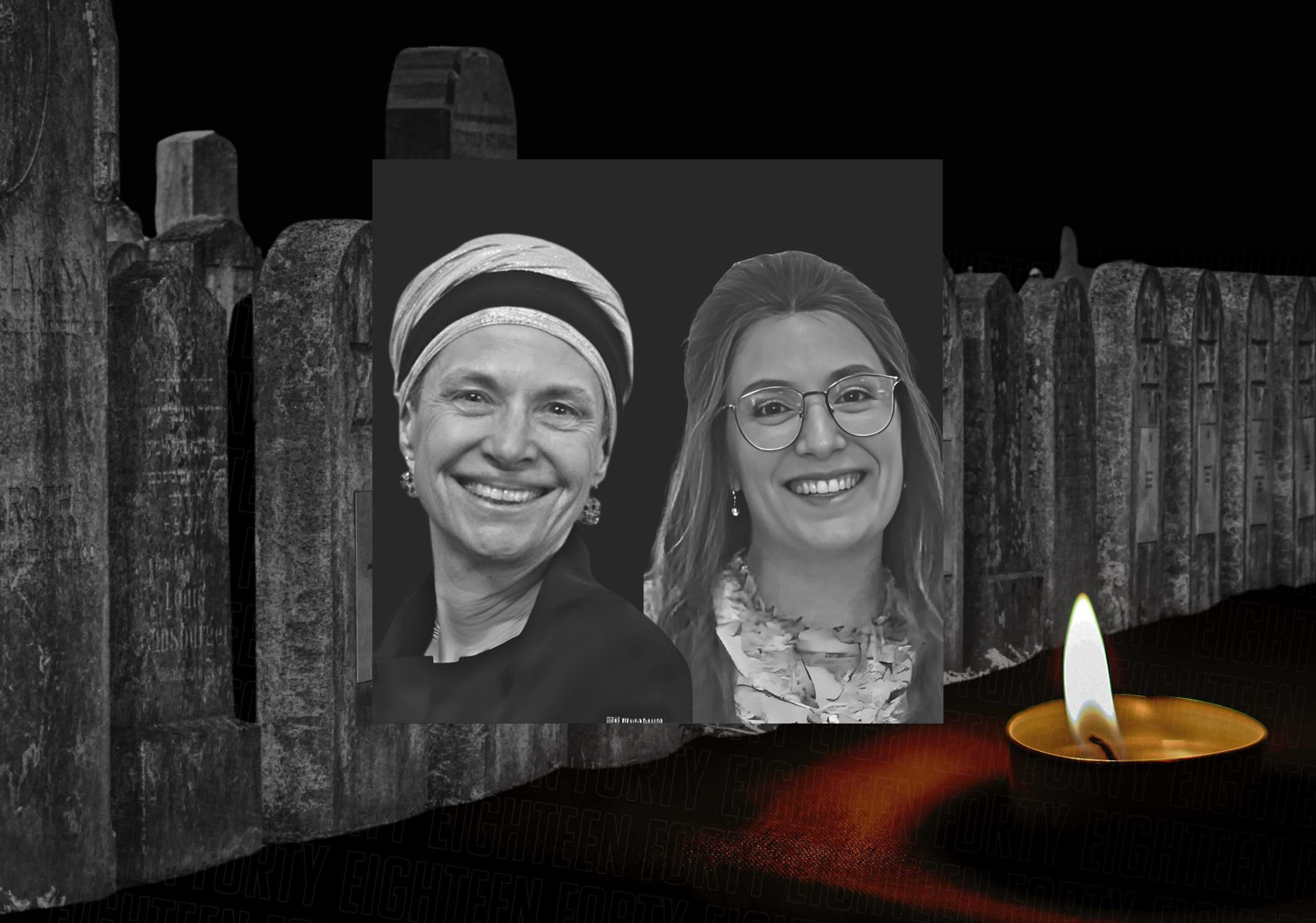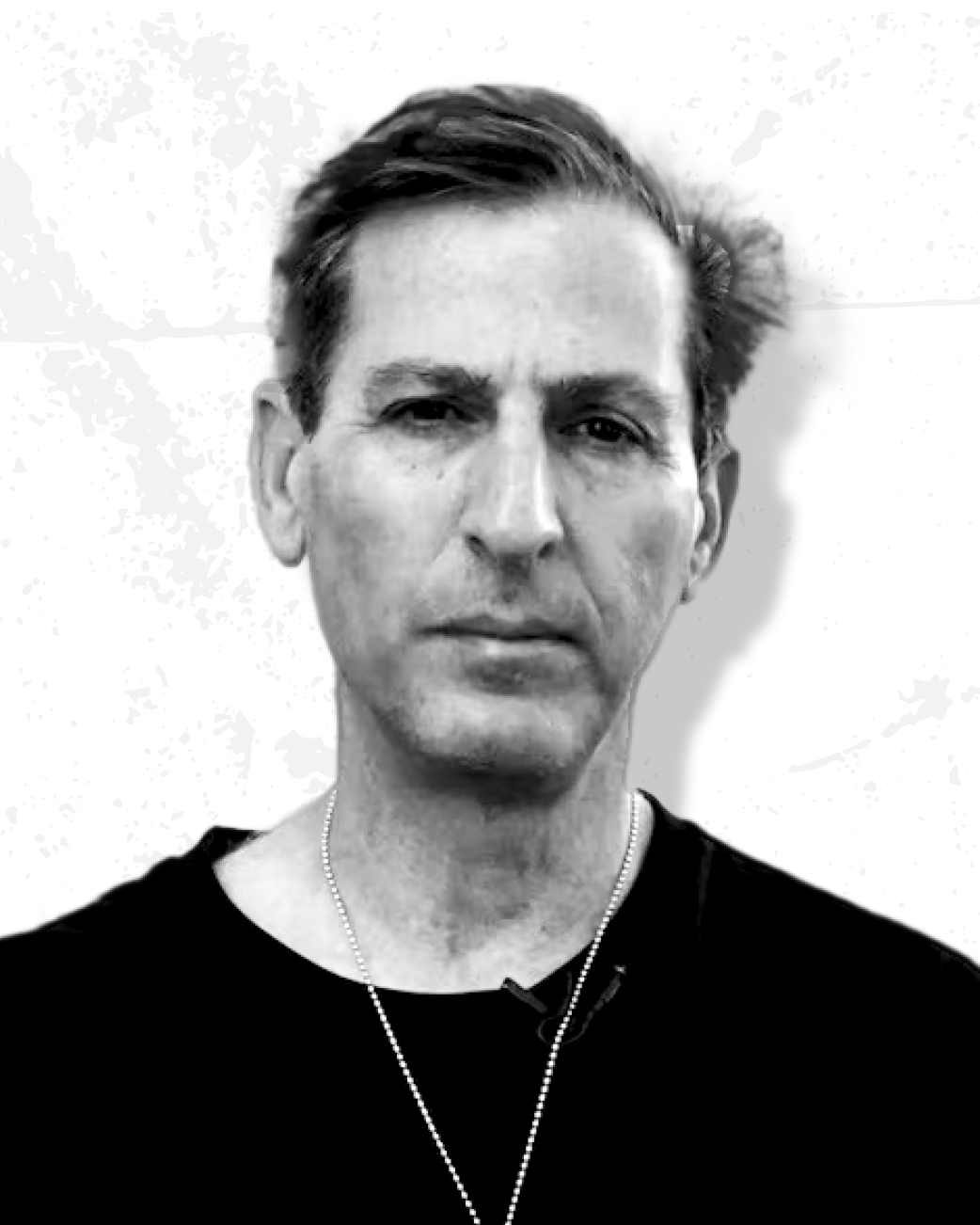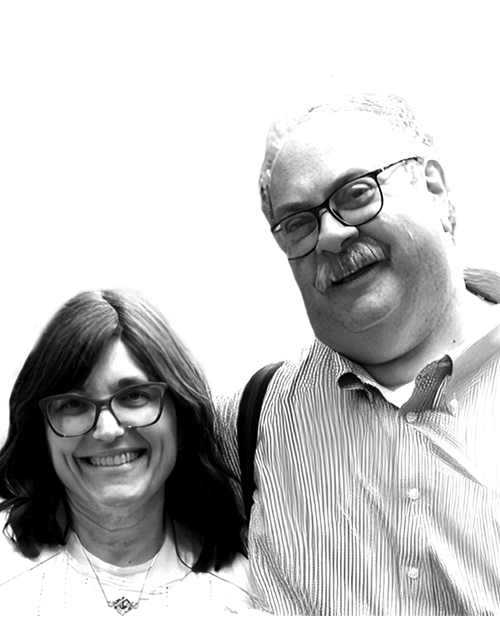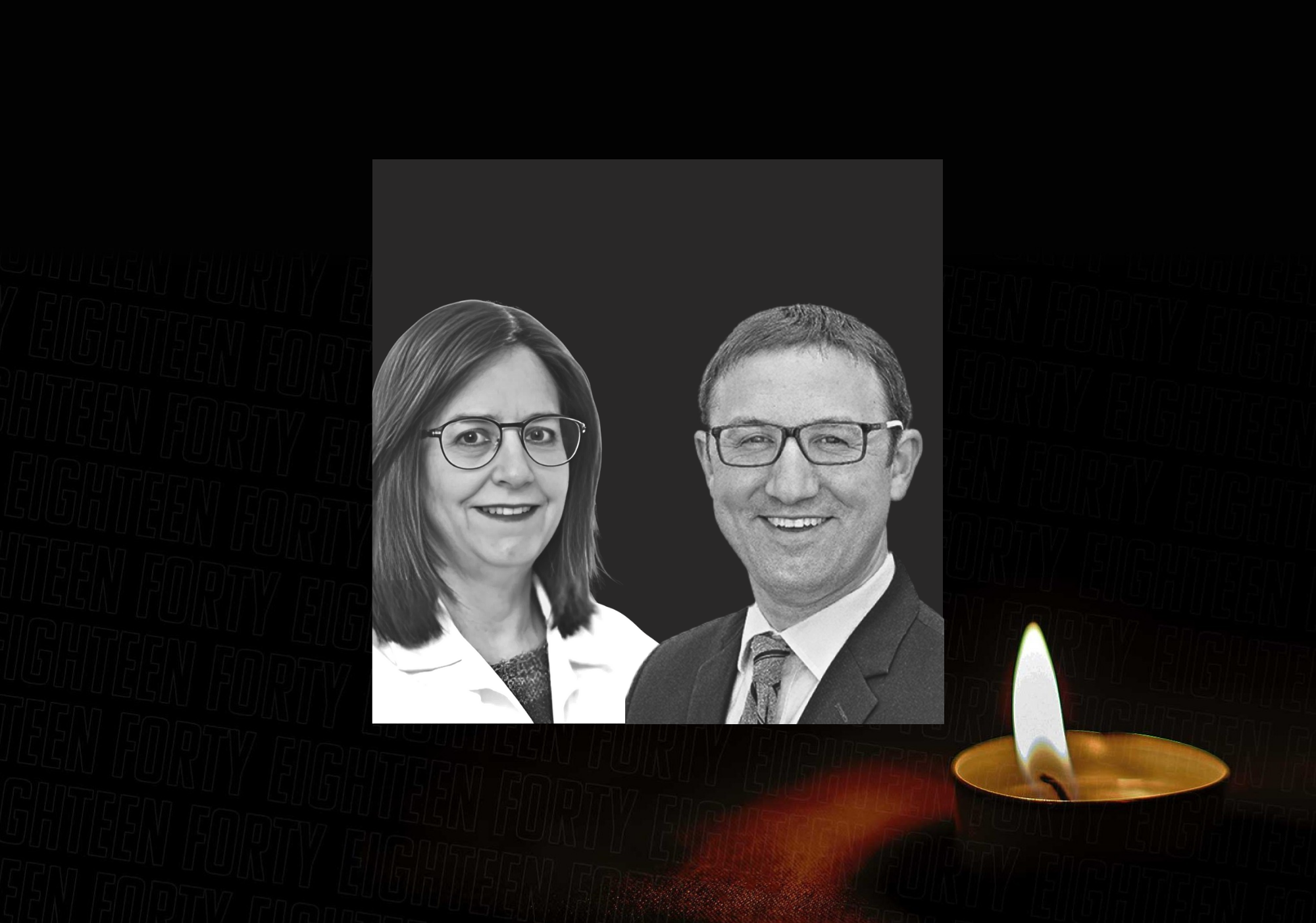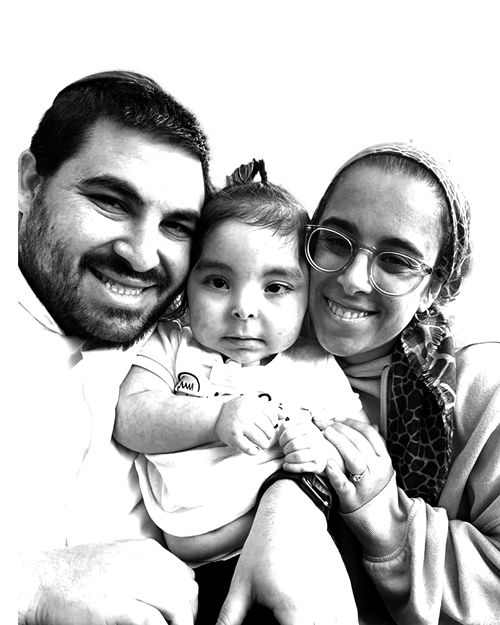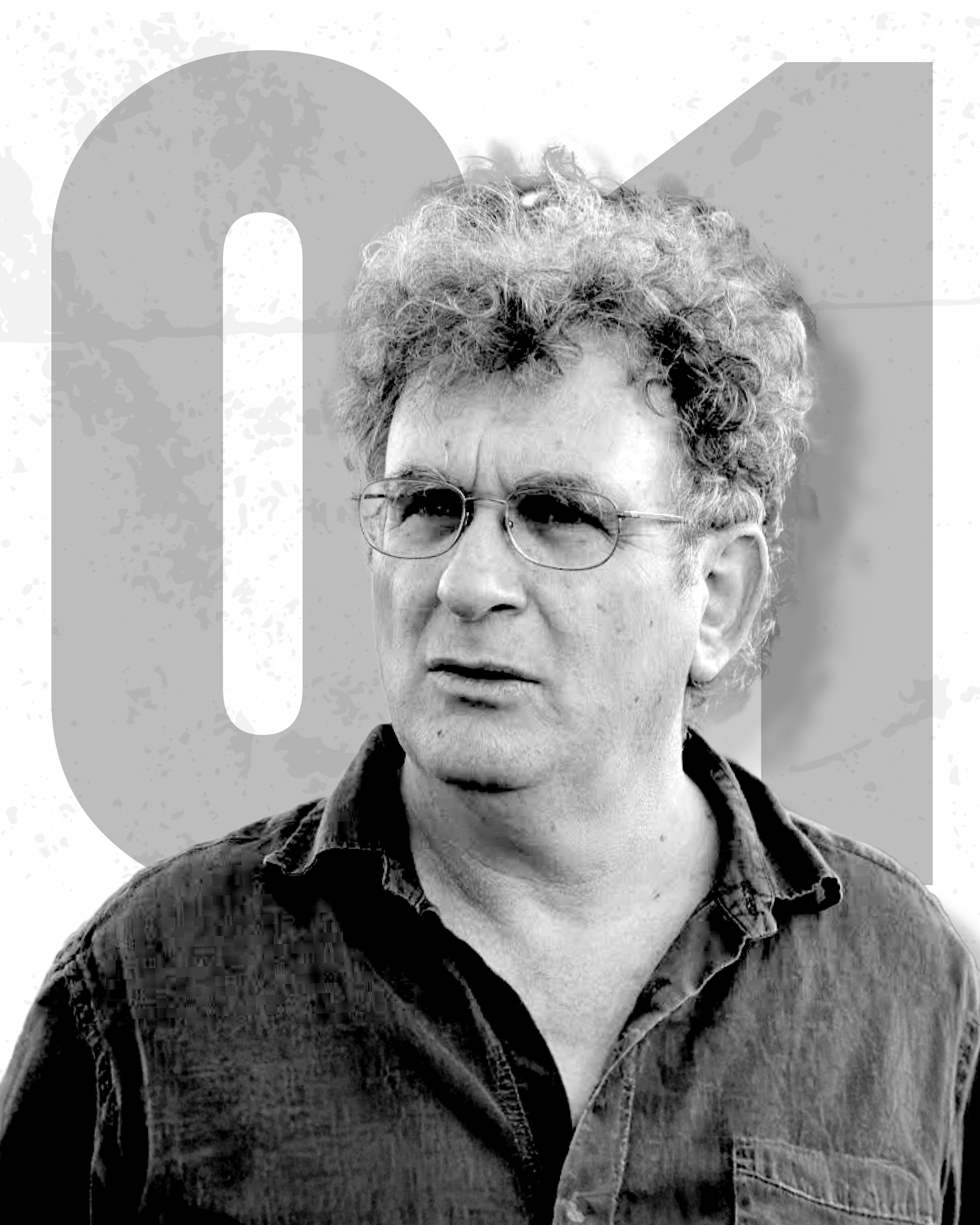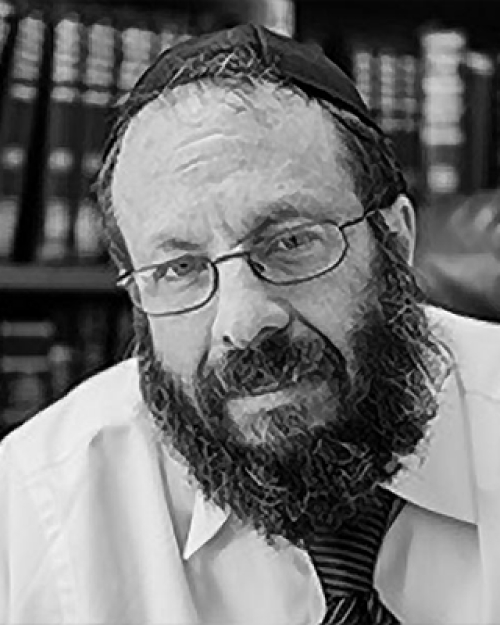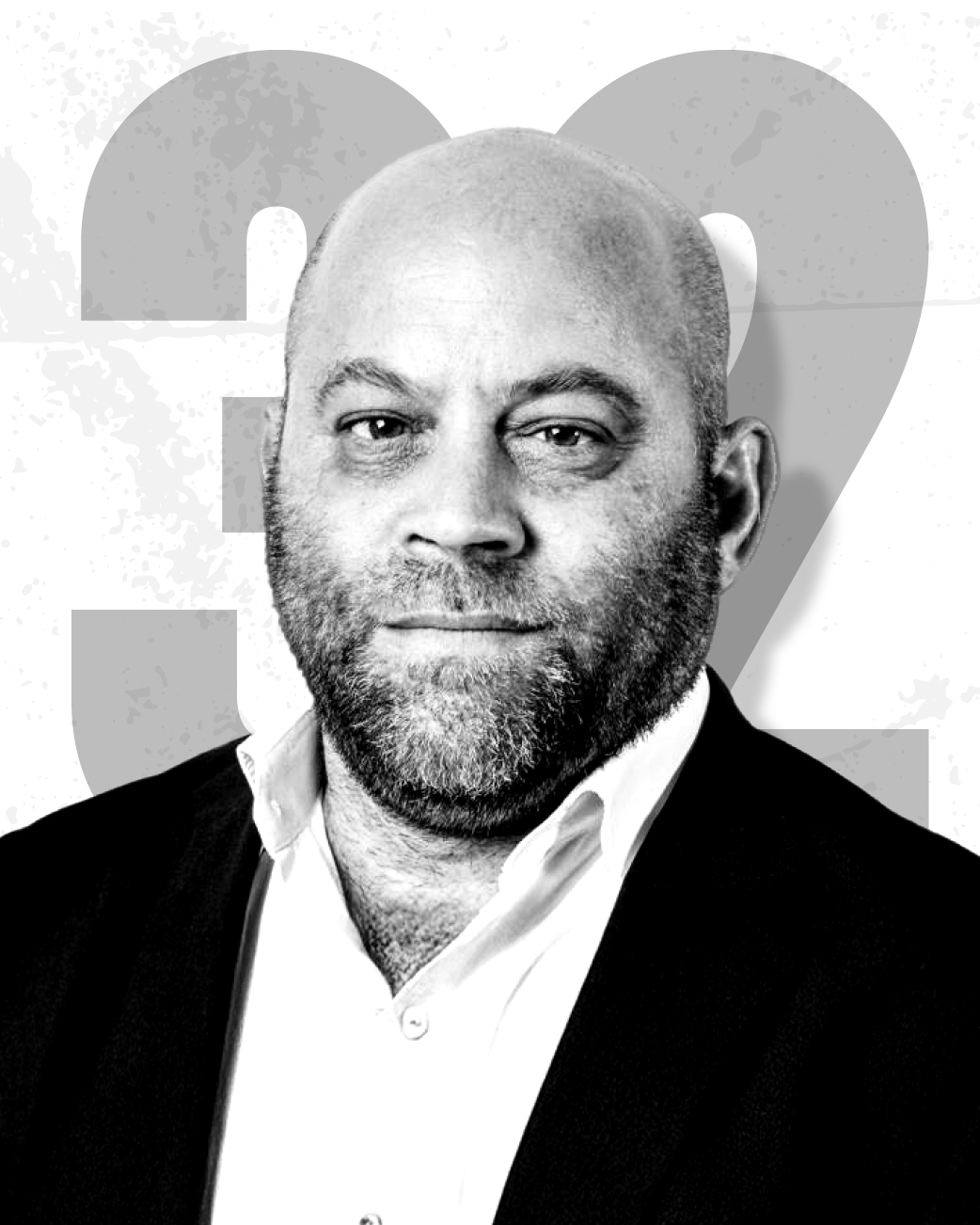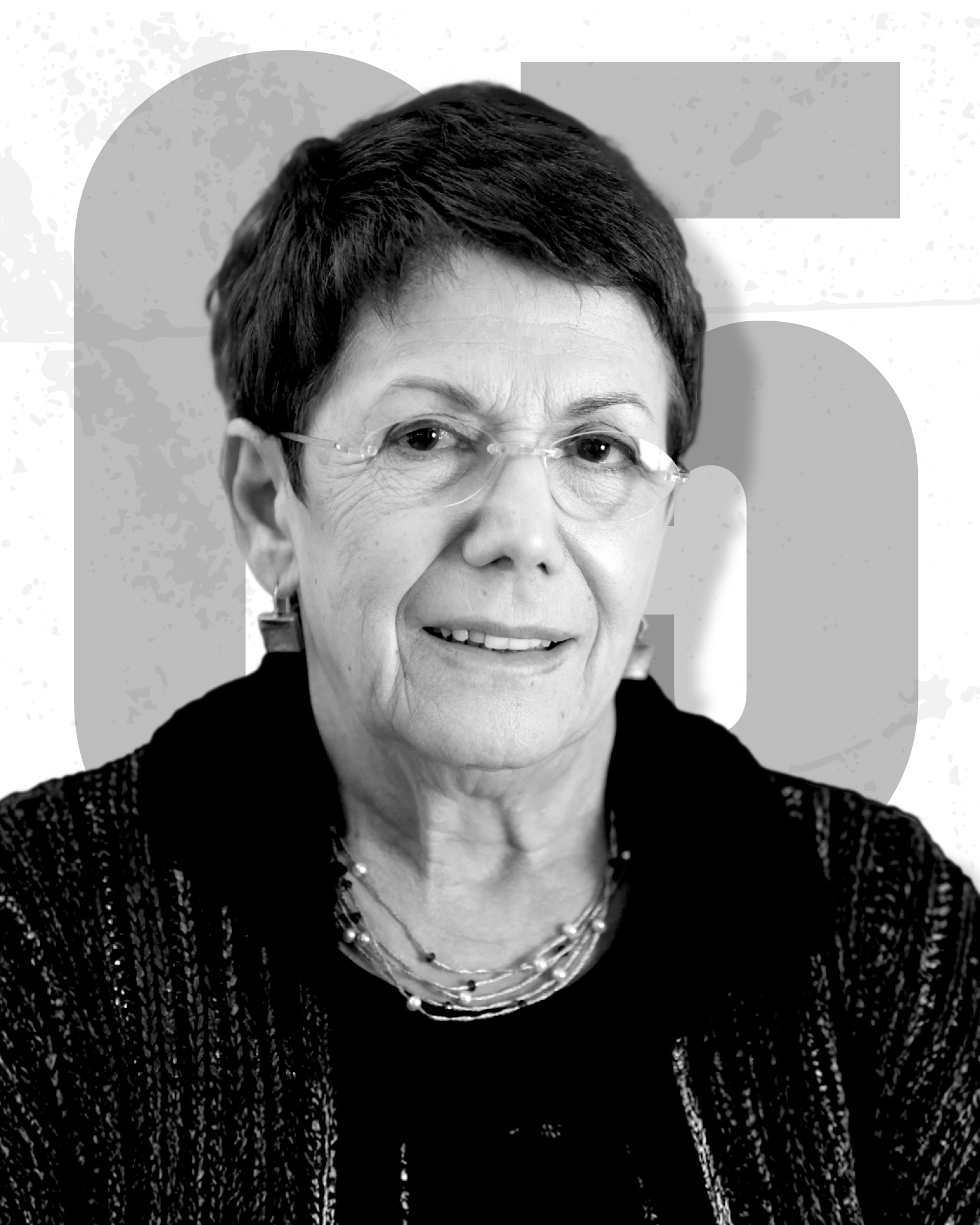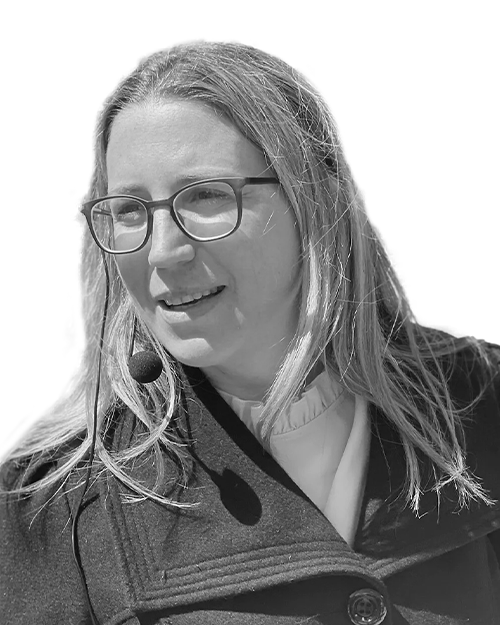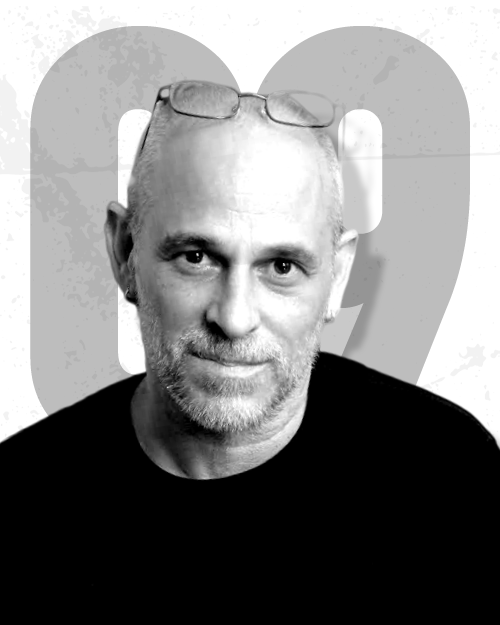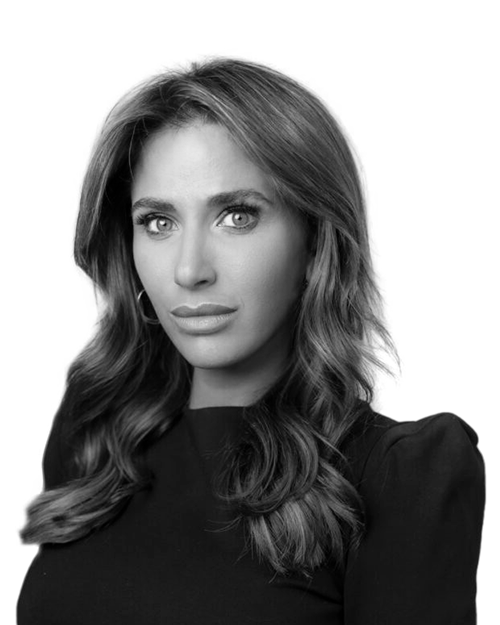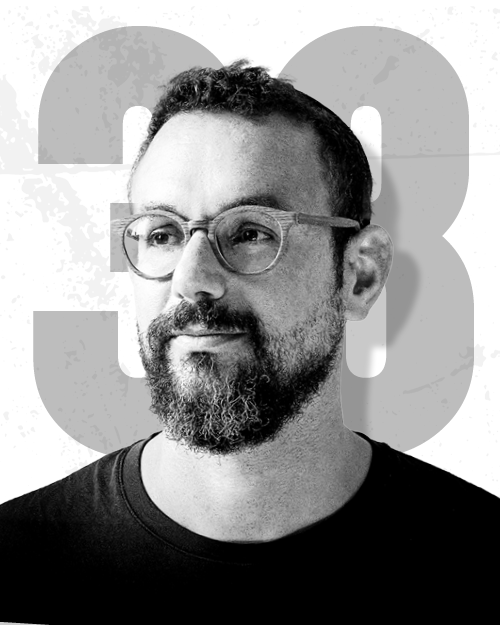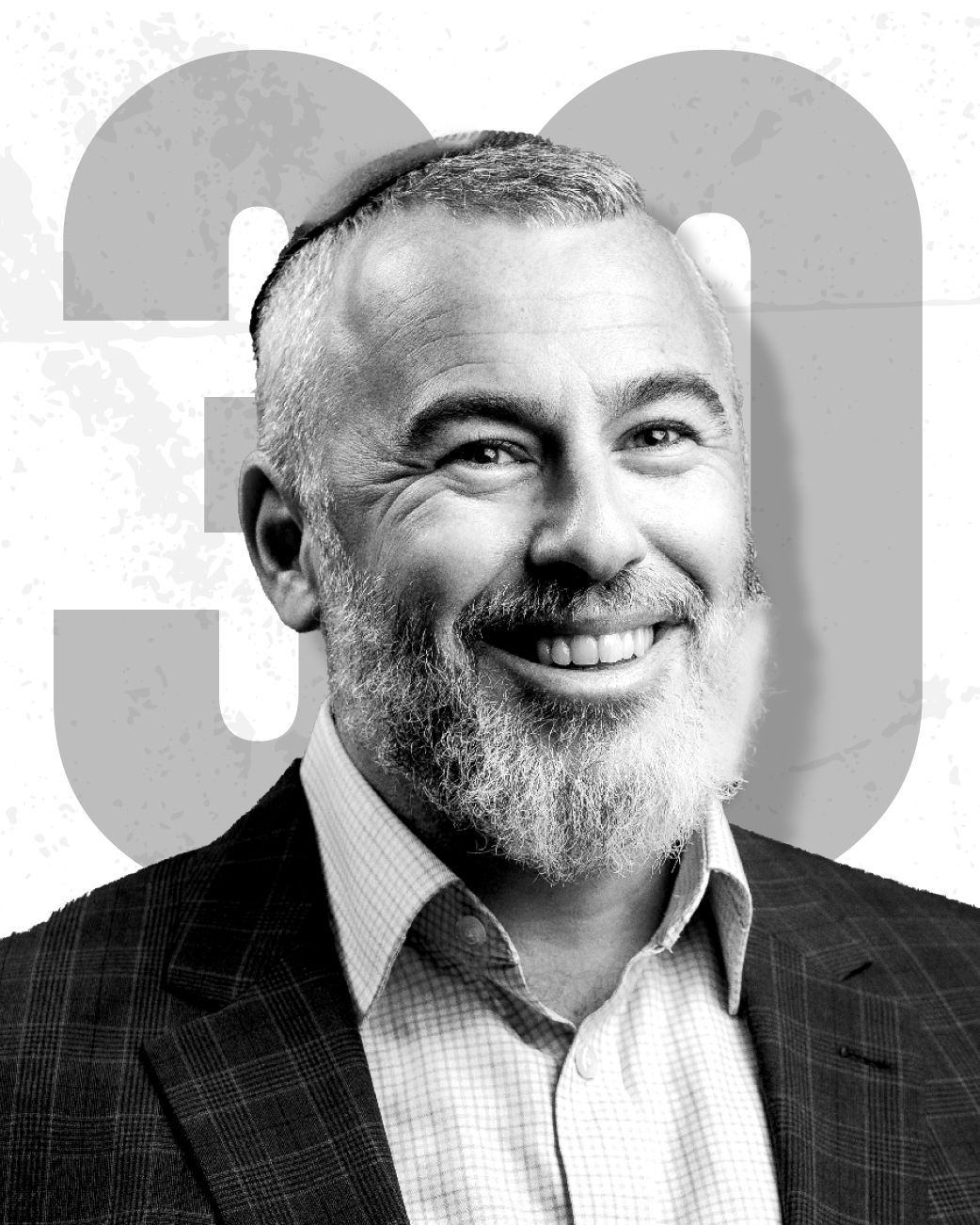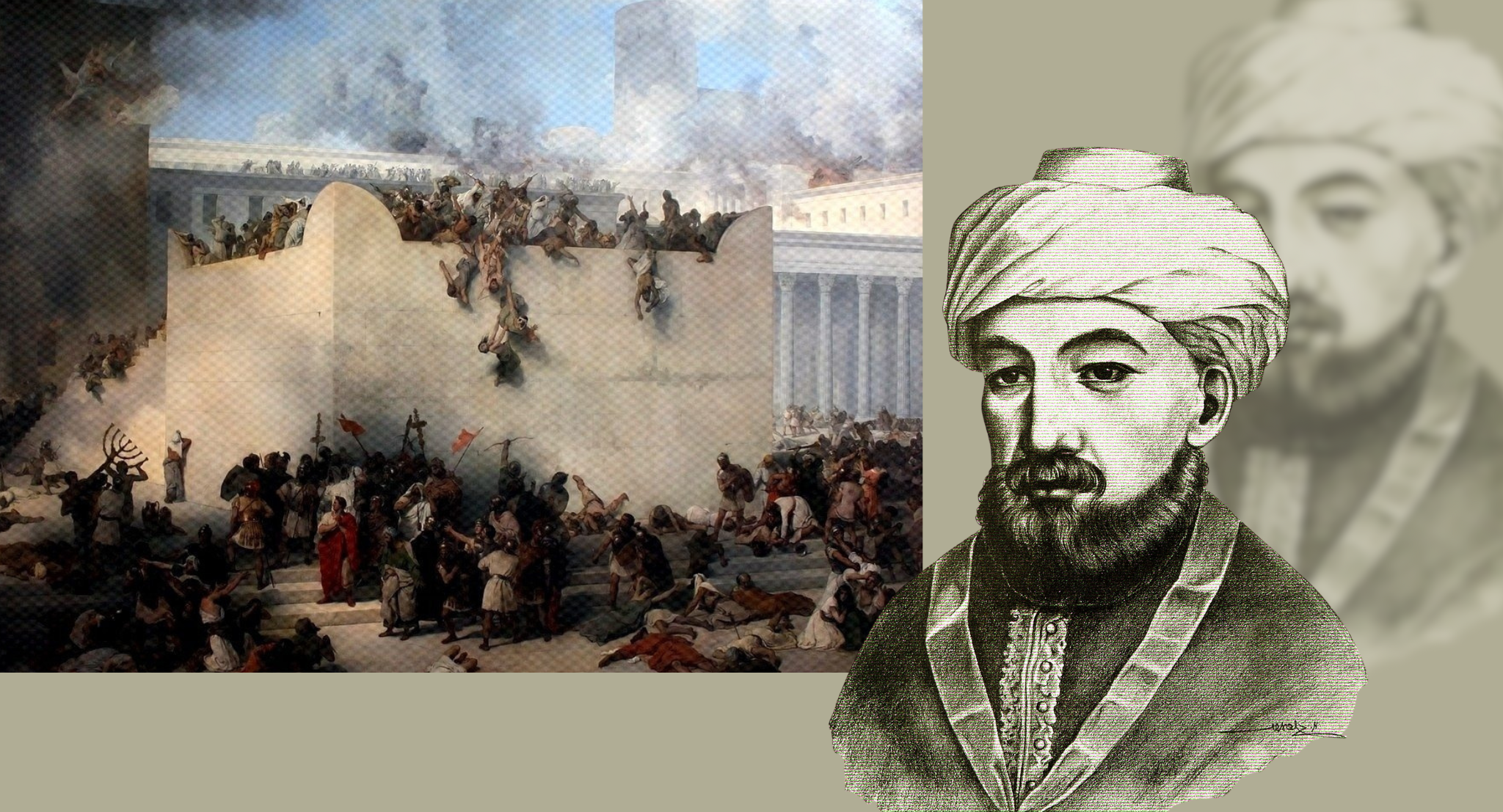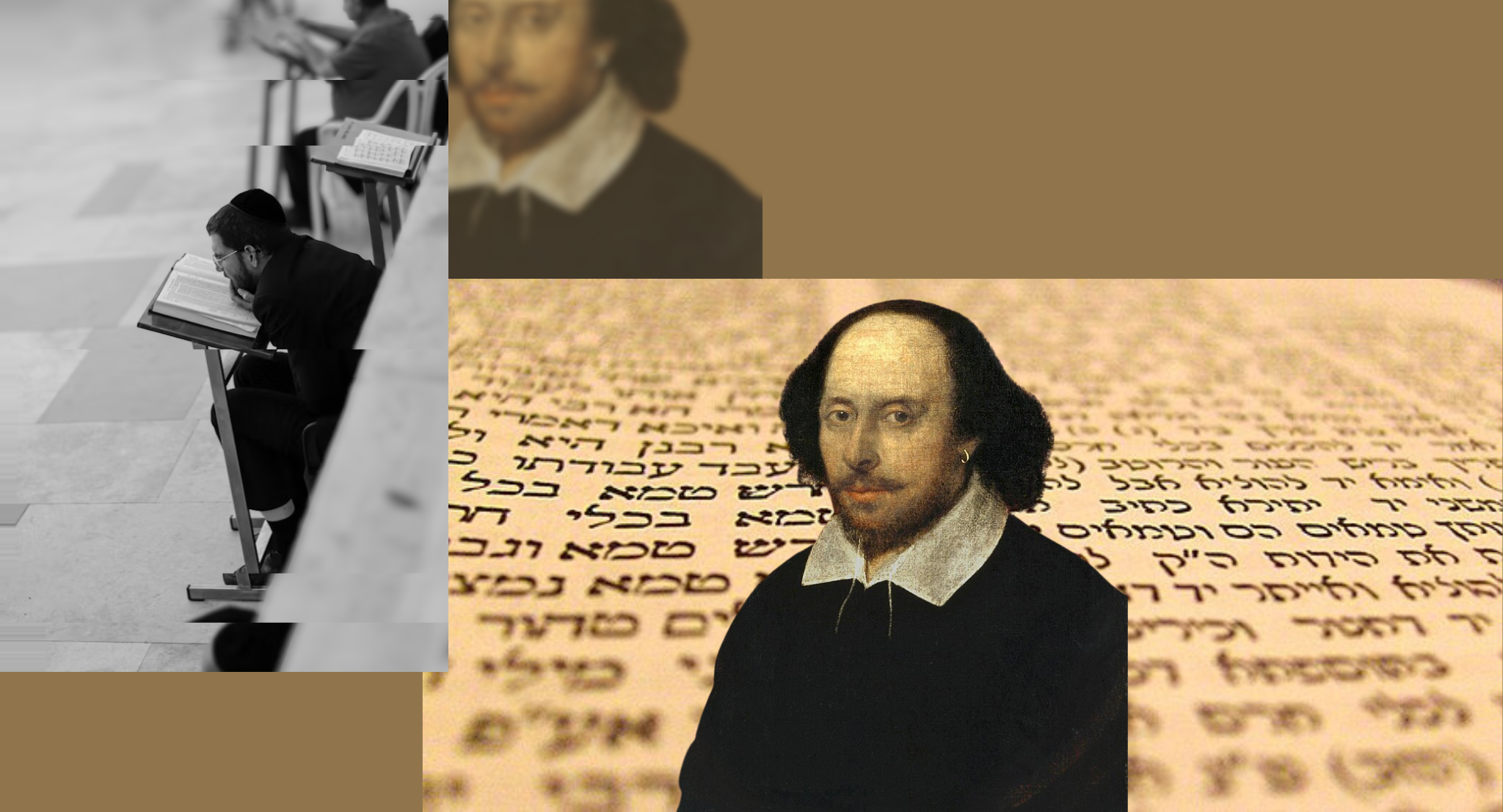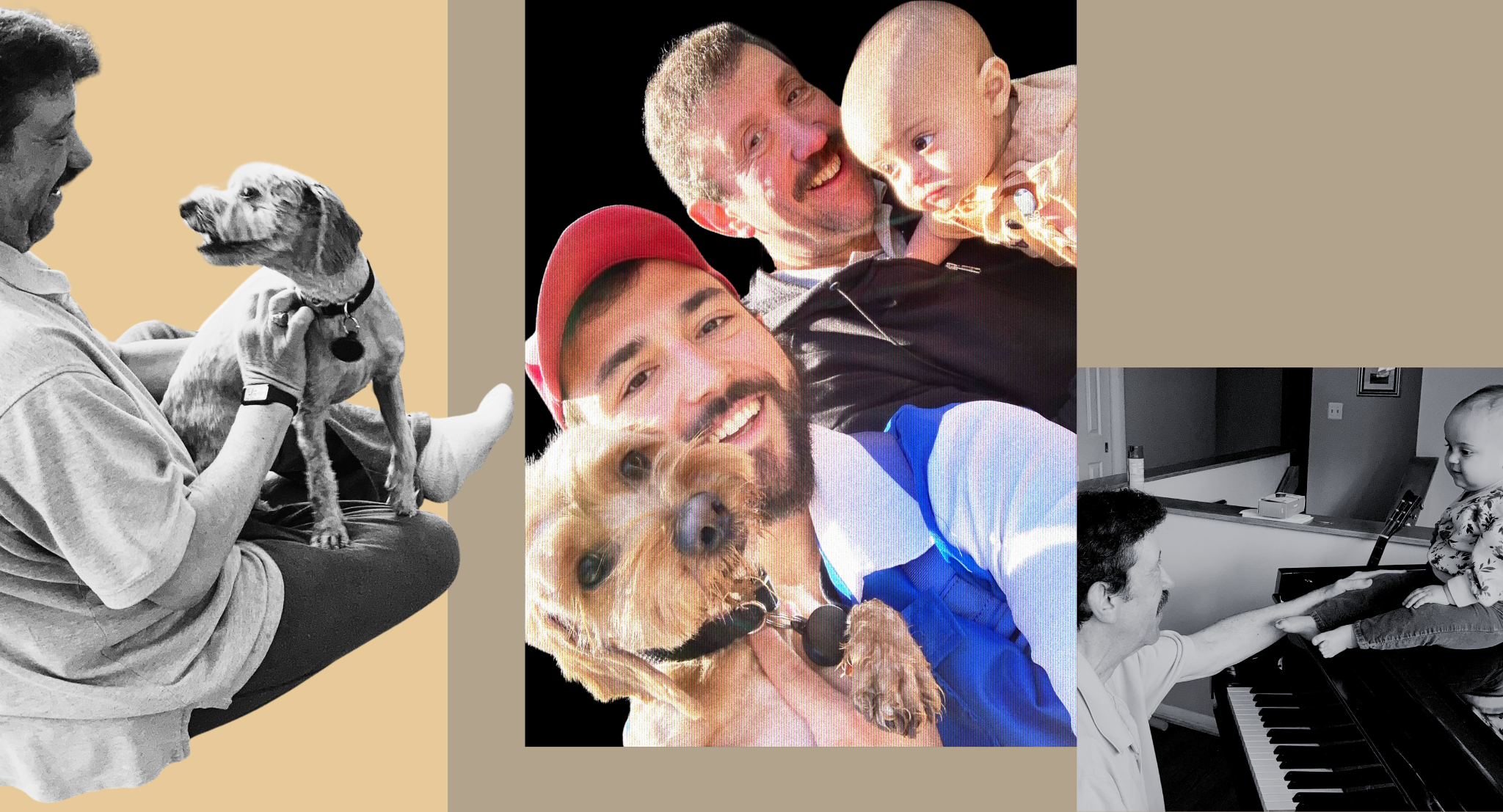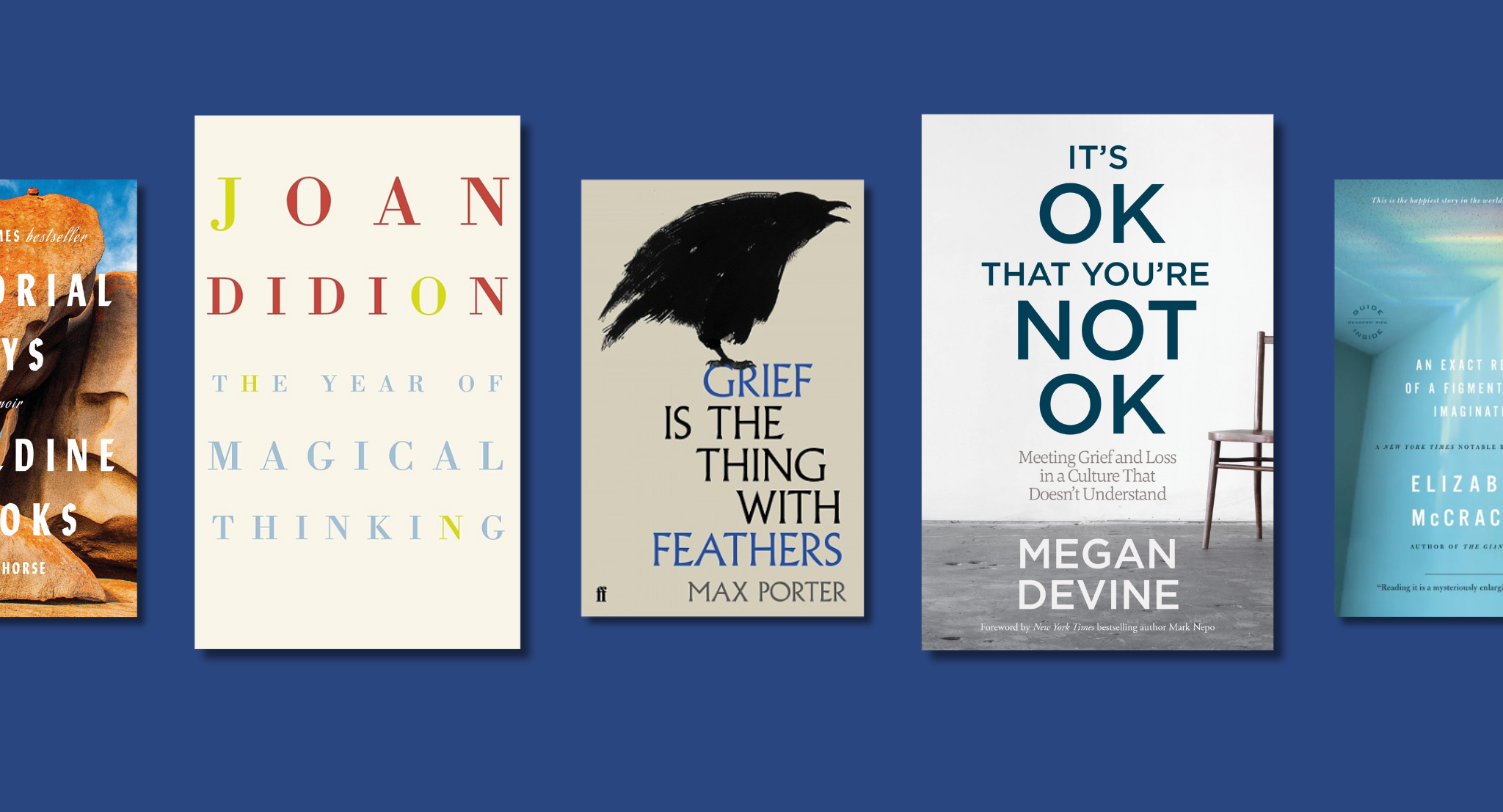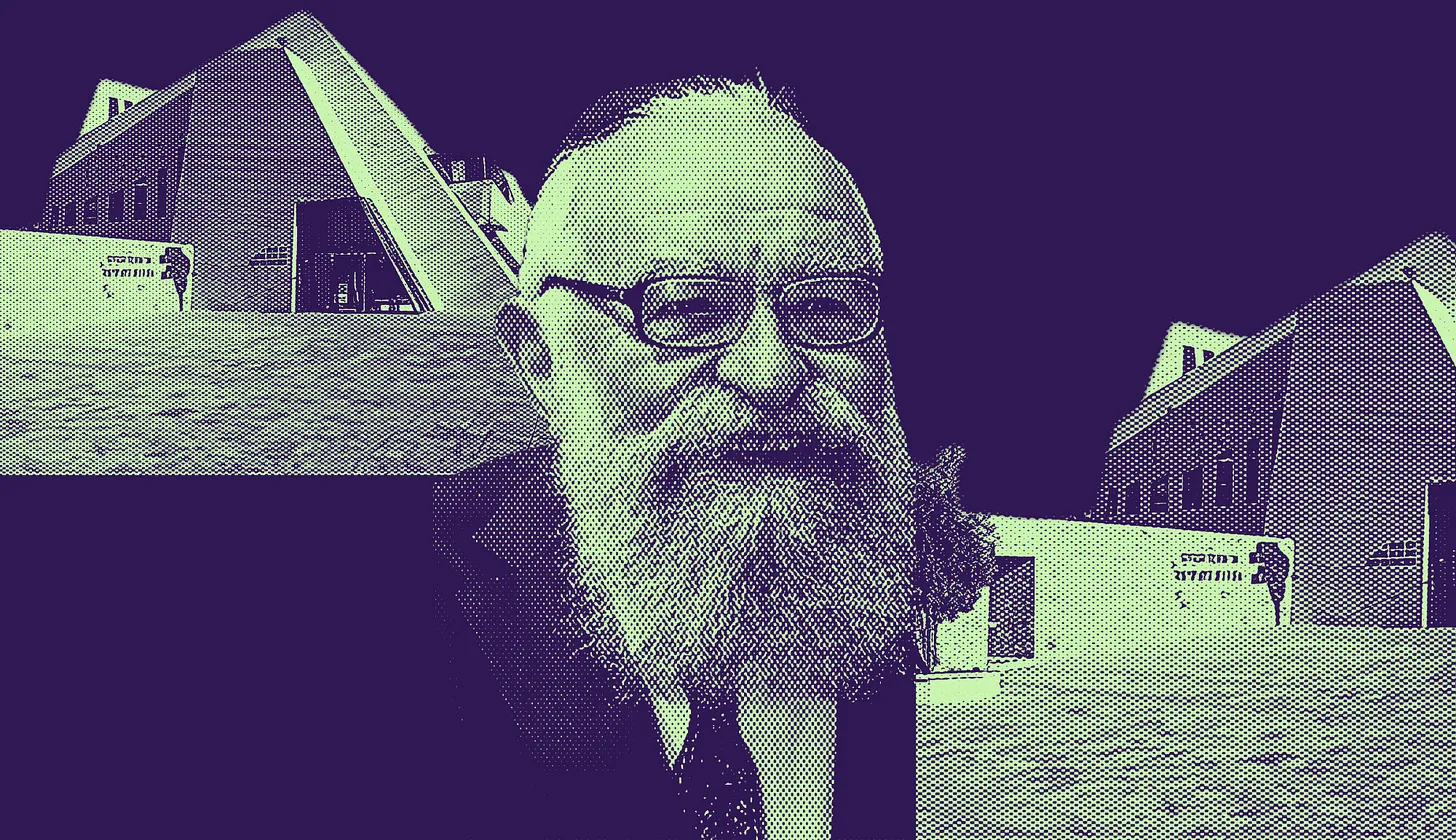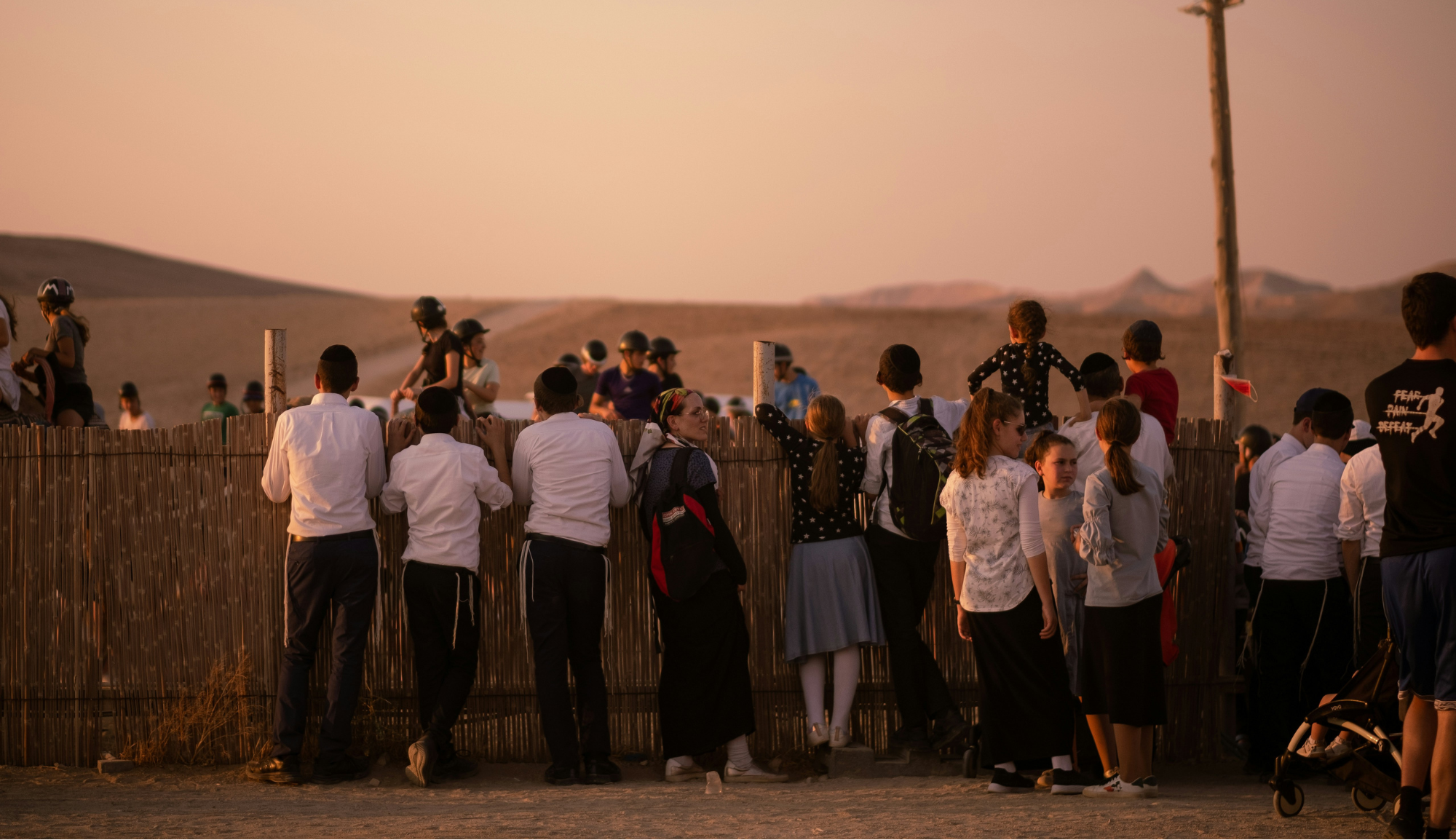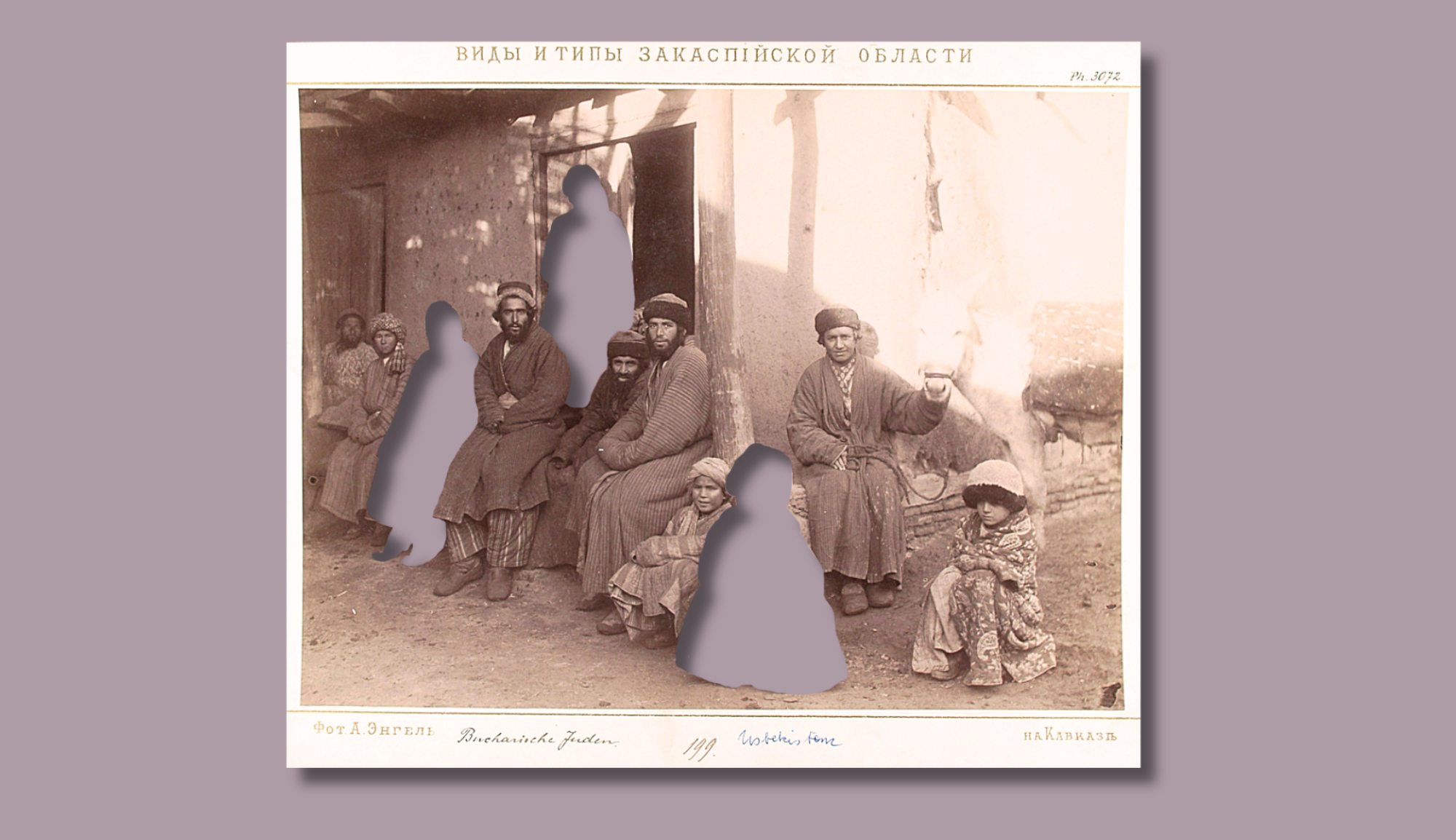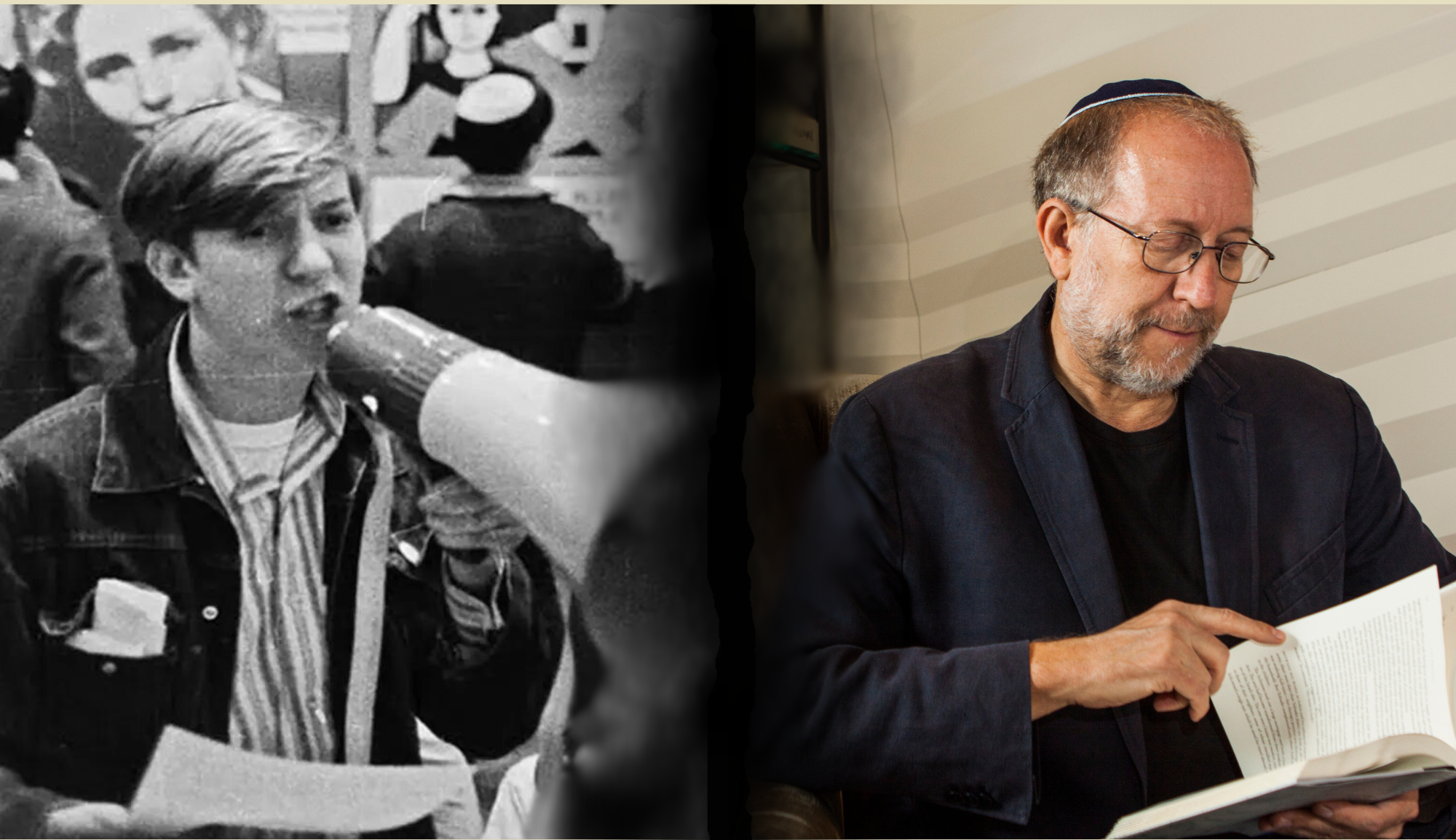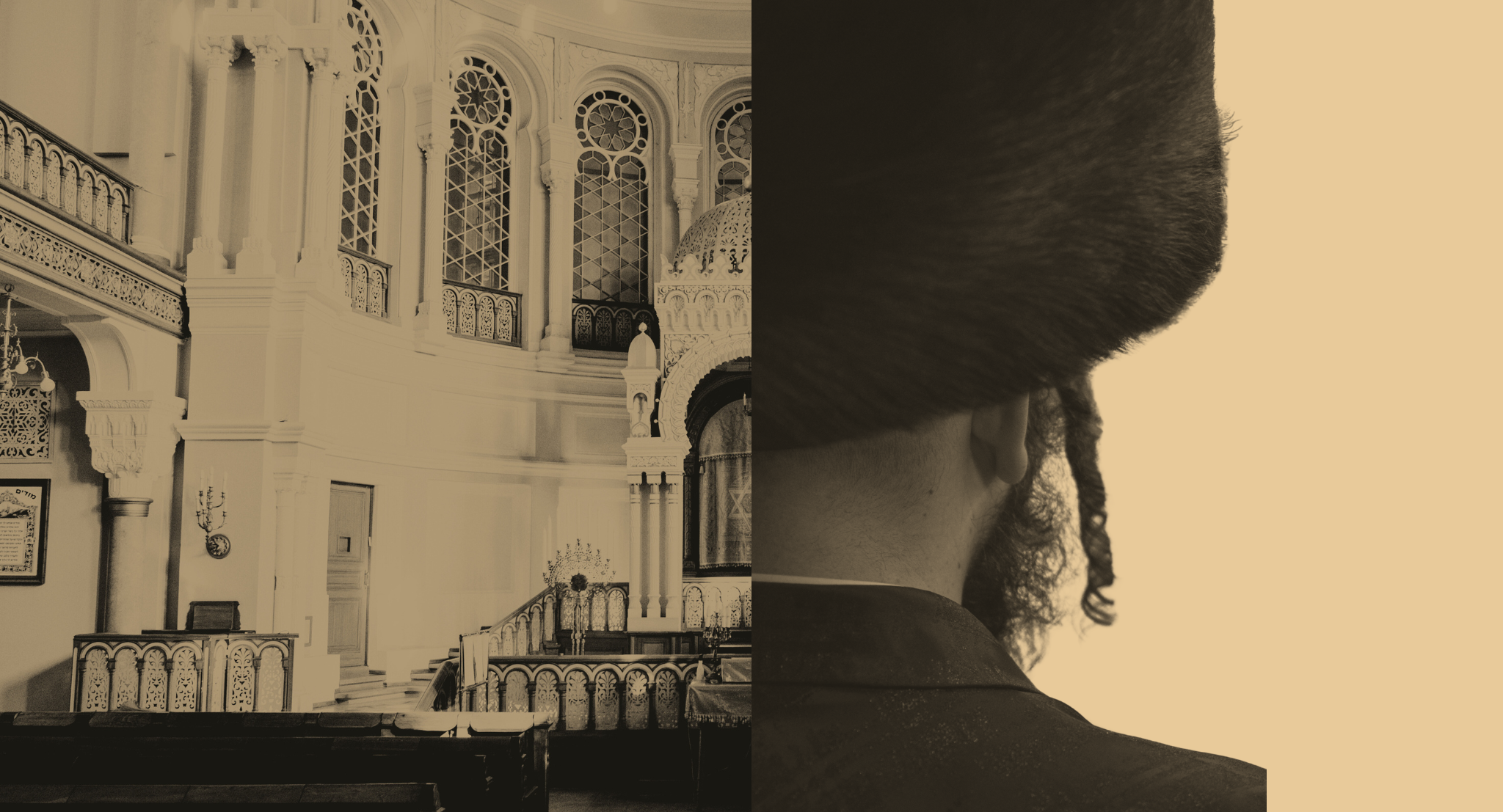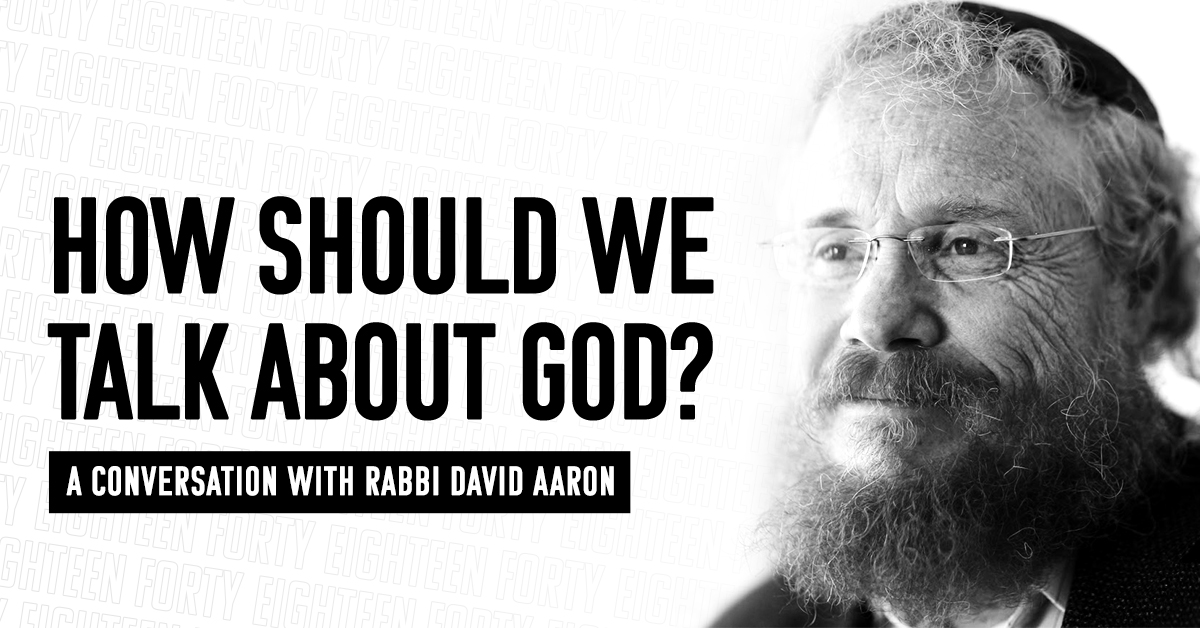
Summary
In this episode of the 18Forty Podcast, we sit down with Rabbi David Aaron, author, thinker, and educator, to discuss what God is and isn’t.
People often think of God as a powerful, heavenly figure giving commandments, but to Rabbi Aaron, God is more of an experience of awe or good that morally inspires. This experience is impacted by our past experiences, often most prominently by those involving our parents. Rabbi Aaron thinks that many atheists are truly believers and would connect to their faith through therapy, not philosophy.
- What is and isn’t God?
- What does it mean to believe in God, and what does it mean to be an atheist?
- Why do people believe in God?
- How does one find and experience God?
Tune in to hear Rabbi David Aaron discuss his views on God and how the subject should be taught in our education.
References:
Tzidkas HaTzadik by Rav Tzadok
The Secret Life of God by Rabbi David Aaron
Getting the Love You Want by Harville Hendrix
Seeing God by Rabbi David Aaron
Ahavas Tzedek
Rabbi David Aaron is an educator, thinker, and writer, who has put the dynamic God at the center of his life’s work. Uncompromisingly lucid, David puts the deepest and most pressing questions of Jewish theology in human terms. He received his rabbinic ordination from Yeshivat ITRI and is the Dean & Founder of Isralight (an international organization and center for Jewish learning in Jerusalem’s Old City) and Yeshivat Orayta (which offers a 1 to 2 year program for high school graduates). David is the author of eight books, including Endless Light, Seeing G-d, Love is My Religion, The Secret Life of G-d, Inviting G-d In, Living a Joyous Life and The God Powered Life. Listen to David to hear how Jewish theology can be a personal endeavor.
Transcript
David Bashevkin:
Hello, and welcome to the 18Forty Podcast, where each month we explore a different topic, balancing modern sensibilities with traditional sensitivities to give you new approaches to timeless Jewish ideas. I’m your host, David Bashevkin, and this month we’re exploring a big topic, namely God. This podcast is part of a larger exploration of those big, juicy, Jewish questions, so be sure to check out 18Forty.org, where you can find videos, articles, and recommended readings.
I’m very often in rooms where we’re having conversations about Jewish programming, whether it’s summer programs, or new curriculums, or different populations that we’re trying to reach. Inevitably, this happens a lot of times in the room, I say it somewhat in jest because I stopped taking it all that seriously, but there’s always a person at a meeting, no matter what, who gets up at some point in the meeting and self-righteously declares, “I just want to note that we’ve been meeting for one hour or two hours and nobody has mentioned blank.” Whether you work in an accounting firm, or in a law firm, or whatever, there’s always that guy in the meeting who gets up, or girl, or woman, I’m sorry, who gets up at the meeting and self-righteously declares – it’s usually a guy though – who self-righteously declares that, “I just want everybody to know we’ve been meeting for two hours and nobody has mentioned blank,” as if they’re the ones of the keeper of secrets and knows exactly the point. Then they mention the word, and they leave the room with their hands raised like George Costanza after telling a great joke.
I think that, in the Jewish circles that I’m in, and educational spaces, what I have often seen happen, and I’ve been in many of these meetings and I’ve heard other people say it somewhat in jest, and it’s okay to make jokes sometimes, you’ll be meeting for two hours about a program, about whatever, and somebody will come in and say, “I just want to note that we’ve been meeting for two hours and not one person has mentioned God.” Sometimes I think, as a critique, this is actually quite productive. I know myself, I spoke once in Chicago, I think in Ida Crown, and I was talking about davening and how to make davening meaningful, and a student came up to me afterwards and said, “It was really interesting, you spoke about davening for 45 minutes, and you did not once mention God,” which I think was a reflection of my personal orientation, and not my hesitance, but the very real difficulty of talking about God.
Sometimes it’s just meant to be frustrating, because it’s not always the one word that answers everything. I think that,in general, this phenomenon, and I don’t actually know if anybody else has experienced this, I just know I have on several occasions, it highlights the very real difficulty about talking about God. I think the difficulty is just as much a function about the transcendence and how lofty the notion of God is as it is a reflection of the limitations of language and what language is actually able to describe, and how so often, the most intimate, real personal parts of our lives are the ones we have the most difficult time explaining or describing or sharing. In many ways, ask somebody to talk about their love for their spouse, or a child, or to talk about their own experience of being alive, things that animate every waking moment of our lives, the more personal, the more real, the more intimately connected it is with who we are, very often the harder it is to talk about. That doesn’t make it any less real, though certainly critics may use that to point that, oh, you’re not able to talk about God, it’s just this God-forbid imaginary being. I think it really gets to the heart of the limitations of language, particularly when it’s so deeply rooted in something experiential, and the confines of our language.
But that really presupposes – and this is what I hope that we’ll be talking about quite a bit – is, what is the right trajectory? What is the right orientation, so to speak, that we should have as a community in the way that we talk about God, and the way that we transmit the existence of God to other people, or the way that we explore if we have doubts about the existence of God? What is the right road to travel on? There are very different roads. The analogy that I’ve been using is something very intimate, something very experiential, talking about the love for a spouse. That’s definitely the language that many philosophers have used, including most notably the Rambam, talking about the love for Hakadosh Baruch Hu, literally the love – not literally, this is going to be a mess, because I’m going to use that word incorrectly 1,001 times. I’m actually going to use, when I say “literally,” I’m going to actually be meaning “kaviyachol,” meaning “so to speak,” which is how “literally” has come to be used and abused in modern language, talking about the confines of language.
But I think for many people, the relationship you have with God is like the relationship that one would have with a spouse. Nobody would ask if my relationship with my spouse is true or false. We don’t talk about certain relationship, we don’t talk about the veracity of relationships in the same way that we talk about the veracity of mathematics, or the veracity of a scientific theorem. The question really is, what is the right set of analogies given the confines of language to talk about God? Should we talk about God using language borrowed from science and from math about proofs, true and false? Or should we be using language maybe more from the world of art, from the world of relationships, from love, from romance, talking about love and difficulty, and inaccessibility maybe? When we talk about our spouse feeling distant, or any of those things, it doesn’t mean that they moved to a different country. It is a very emotional feeling, and nobody would be able to say whether or not their relationship with their spouse is true or false. A lot of this has to do with the questions, and I am willing, not just willing, I think it’s really important to be able to consider multiple approaches to how people consider and think about faith in God, doubt about God. Any of these things, I think we need the space, and we need a little bit of that latitude, because of the confines of our own language, to be able to discuss this.
I think all of this needs to be founded on the notion that our and one’s individual ability to discover God, or have a relationship with God, gets filtered through our own specific heuristics, our own upbringing, how we’ve dealt with authority in our life, how we figured out and how we wrap around the other questions. How do you know other people exist is a famous Cartesian question. How do we know that anybody exists outside of us? All fair questions. I look at it as there are some roads that are deeply rationalistic, philosophical, borrowing language from math and science in the way that we consider this, and there are other roads that I feel are deeply experiential, and both can talk to one another. You can have a rationalist trying to use and say, “Can we rationally justify that experiential feeling?” And we could have somebody who is experiential looking at rational evidence and saying, “Yes, this does in fact move me.” I certainly look at myself as somewhat of a cross-over figure in my own relationship with Hakadosh Baruch Hu. I don’t have an easy time talking about God. That’s not because it’s not something that’s in my life, I think it’s much more of a function of my personality and how deeply personal it is.
There are some people, when you’re at a wedding or a concert, they love the uplifting songs where you’re dancing and you’re jumping up and down, and you’re clapping, and it’s something very outward, something very outspoken. I am very much not in that category. I’m the person who likes those songs that cultivate an interiority, and take the mirror that’s facing outwards and turn it inwards, which I think personally, for me, makes talking about God very, very personal.
I also think that there’s a circularity about talking about God. Nobody enters this discussion with zero-based budgeting. Nobody enters such a foundational, seminal question about whether or not God exists or their relationship with God with what I would call zero-based budgeting, like you’re entering into a new fiscal year and you’re like, “Okay, what should we spend our money on? Let’s not pay any attention to previous years,” which is how zero-based budgeting works. That is not how we enter into conversations with God. I think conversations about God are very much integrated and a product of previous experiences, ideologies, how we look at the world in general, how we look at others in general. It is something that, in many ways, is so all encompassing, given the very notion of God itself, that to approach the question and not at least factor in our own experiences and our own, I don’t want to call it “preconceived” because that almost sounds negative, I think it’s something very positive, our own predilection, maybe, towards different modes of thought and reasoning and relationships and how we build those things.
All of those play a role in the way that we developed a relationship with God. There’s an absolutely beautiful idea that I’m somewhat afraid to share because I think it can be misunderstood almost as a point of heresy, but it’s an idea that has long moved me. That’s an idea that Rav Tzadok HaKohen MiLublin, the great Hasidic thinker who I love to quote, shares in his first work on Chassidus, on Tzidkas HaTzadik, where Reb Tzadok talks about this beautiful Midrash that says, “Every time you do a mitzvah, an angel is created. Every time you fulfill a positive commandment, an angel is created. And if you do something wrong, so to speak, a bad angel is created.” I was taught this when I was young, and I would think about God-forbid all of the mangled angels that I likely created if I didn’t do the mitzvah properly. I took it very, very literally. Rav Tzadok, without digging into the message of this regarding angels, explains something really fascinating. He says, “The reason why, in this Midrashic reading, you get an angel every time you do a positive commandment is because when you do a mitzvah, we accepted the mitzvos through an agent when we stood at Mount Sinai, when we stood at Har Sinai, we received the Torah through the agency of God.
When we do a mitzvah, since we received it through agency of Moshe Rabbenu, therefore, in correspondence to that, when we fulfill a mitzvah, we actually create an agent of sorts in this middah kineged middah, in this correspondence. We accepted it through a shaliach, through an agent. So, by fulfilling it, we then create a shaliach, we create an angel. But Rav Tzadok takes it a jaw-dropping step further. I think you have to be careful in the way that you understand it, but I think viscerally, it’s something that I have experienced in my life, and that is, Rav Tzadok says we actually heard directly from God two mitzvos: the mitzvah of “Anochi Hashem elokecha,” that I am your God, and the second commandment of “Lo yihye lecha elokim acherim,” that you should not have other gods. Rav Tzadok actually says, and this is his jaw-dropping statement, that just as when we create a positive commandment we create an angel because we accepted those commandments through an agent, since the commandment of belief in God, so to speak, was accepted and heard directly from God, in reward for accepting that commandment, we actually create God, so to speak. That’s a jaw-dropping statement, this notion that we create, so to speak, that there is something emerging from our own personal experience and creating this notion of God in our lives.
I think it can be easily misunderstood if we don’t obviously talk about a reality outside of ourselves and the existence of God outside of ourselves, but I think as a phenomenon, something experientially, I’ve always found something real in this, that our embrace and our notion and the way that we come to God actually mirrors the God that we create for ourselves, coming back to this idea for Rav Tzadok, which is why I think, and something that we’ll be talking about a lot, it’s often so difficult to have these cookie-cutter curriculums or seminars about proofs, showing people, “This is why you should believe in God, or that is why you should believe in God,” because so much of that discounts the very personal experience, or the very personal heuristics and methodology, that people bring to different questions.
Nobody is doing zero-based budgeting with a question of this magnitude, which is why I think it is such a complex question to even talk about, but which is why I am so excited that we are talking about God, the existence of God, doubt, all of those questions this month on 18Forty. I think that we’ve assembled an incredible array of thinkers and speakers who are ready to weigh in on this question deliberately from different angles. If you find yourself listening to one thinker and saying, “That totally resonates with me,” and then the next week, you’re like, “No thank you.” That’s normal and natural coming back to this idea that there is something deeply personal about the way that we conceive of this relationship, given that it’s so all encompassing, it very much comes back to our particular orientations and styles. The same way that developing a romantic relationship comes back and doesn’t necessarily, can’t be reduced to any formal proofs or ideas of who’s the right spouse for one person to the other, or the right child, or whatever analogy you want to use.
I am so excited for our guests this month. Our first conversation is with a noted author, thinker, educator, Rabbi David Aaron, who has written many books about the existence and developing a relationship with God. Rabbi Aaron is somebody, I’ll admit, from a distance, having heard him a few times, was not for me. Not my style, not the language, maybe it was overly emotional. I’m sometimes overly emotional. For me, it did not work. However, I will admit that our conversation that I’m so excited to share with you resonated with me in some deeply personal ways and I’m so excited to share with all of you. Our second guest is somebody from the opposite end of the spectrum, somebody with the rigors of philosophical training of the highest order, Rabbi Dr. Aaron Segal, who is not only a student of Rabbi Aharon Lichtenstein Zecher Tzadik Livracha in the gush, but was also a student and received his PhD from Dr. Alvin Plantinga, which is a name that you may not be familiar with, but we’re going to share a great deal more about his thought.
He is not Jewish, but he is one of the leading analytic philosophers talking about the rational founding for a belief in God and religious life. Aaron Segal, a student of both of Aharon Lichtenstein and Dr. Alvin Plantinga, is able to see the full court of how people approach this idea about God. I’ll just warn you in advance, some of our conversation has some real philosophical language, but if you’ve ever been the kind of person who has begged for a curriculum on emunah, or a real proof for God, this is the language, the ideas, and the direction that I think would very much interest you.
Our final speaker is somebody who I think stared at the ultimate question about God directly in the face. I look at that question as the question of theodicy, meaning the existence of evil, and how broken this world appears to so many, and that is Rachelle Fraenkel, who, as anybody who knows, or we all should know, lost a child who was kidnapped and then murdered by terrorists, and has been an outspoken person about staring directly into the eyes of tragedy and difficulty and still being able to emerge with some semblance of healthy emunah intact. I know that for so many people, her experiences and her life trajectory of what she has been through allow other people who look at the world, and because of what they’ve experienced, and because of what they’ve seen, maybe it feels like the God in their own lives is a little bit less accessible, a little bit more difficult to apprehend and understand. I think grabbing hold of her proverbial hand and walking through how she’s been able to build a life of faith, even after experiencing tragedy of that magnitude, I think is something really important, and very much a part of the conversation of God, because I think of all of the questions that anybody has ever had with God, I think experiencing trauma, difficulty of any magnitude can really shake the core of one’s faith. That is something that absolutely comes up in all of our interviews, but I thought that Rachelle Fraenkel would be the perfect guide through the course to close our conversation this month about God.
I am so excited that you are coming with us on this journey this month to talk about God. As always, you could visit us on our website on 18Forty.org, where you’ll find more videos, articles, and conversations to continue our conversations and explorations together. This is a group effort, and we want people’s feedback and ideas, not just on this topic, but all of the topics that we explore. Without any further ado it is my absolute pleasure to introduce my conversation with Rabbi David Aaron.
Welcome all to the 18Forty Podcast. It is my absolute pleasure today to introduce Rabbi David Aaron, who is a teacher, author of many books about God. I’m holding in front of me his book, The Secret Life of God, though he’s written several other books. He is an integral, I believe founding member, you could correct me on the biography, of Isralight, and is a Rosh Yeshiva in Yeshivat Orayta in Israel. Rabbi David Aaron, thank you so much for joining me today.
Rabbi David Aaron:
Thank you so much for inviting me.
David Bashevkin:
This is really special. I want to actually begin with the beginning to your book, because there’s imagery in there that I find very powerful and is the right way to begin our conversation. I’m going to read your words: “Grasping the truth about life is like watching a photograph in the midst of the developing process. First there was a little gray emerging in the corner, then something a little darker appears in the middle. Little by little, the shadows fill in, definitions appear, and eventually the actual images are visible, but only when the whole picture emerges can you really understand what you are seeing.” You use this analogy for how the image of a photograph slowly emerges to explain how you want to talk about God. I want to begin with the question of, why did you choose to begin your book, The Secret Life of God, without proof or discussion about how do we know God exists, and instead you began with a description of what God is?
Rabbi David Aaron:
Right. Well, I think that a lot of people are suffering from an immature and a disempowering, oppressive image of God. I don’t think I would be doing someone any favor to try and prove there’s a God, when I say God, they have an understanding that I find, not only distasteful, but I feel is destructive. The Lubavitcher Rebbe, when atheists would come to him and say they don’t believe in God, he would say, “The God you don’t believe in, I don’t believe in either.” I’d rather just focus on, and I tell my students, I actually start off often with my students, I say, “Listen, I know you’re going to find this really surprising, but even though I’m a rabbi, I don’t believe in God.” They are shocked by that. How can you say that you don’t believe in God? I say, “Well, because not only do I not believe in God, but Moses didn’t believe in God. He never even heard of God, because the word G-O-D is not found in the Hebrew Bible.” Most people sadly have never really had a sophisticated, intellectual, as well as spiritual real conversation of, “What do you actually mean when you say God?” Because what most people mean when they say God is, my guess, the God that I wouldn’t believe in, and that’s this image of God being some invisible man, male figure somewhere in the sky, controlling us, having a big ego, and constantly seeking our praises.
I’d rather, let’s first, before we go into whether I believe or not believe, let’s discover or explore, what does Torah actually mean when it says God? It actually doesn’t say “God,” the word that’s used that was translated as God is the yud, the hey, the vav, the hey, what does that mean? I’d rather, rather than talk about, do I believe or not? I’d rather just say, well, what do I actually mean? What does “the divine” mean? Not only intellectually, but more important, experientially, because it’s just like, I could never really know what chocolate is by looking it up in a dictionary. A dictionary will tell me that chocolate is basically grounded up cocoa beans with a sweetener added. I still don’t really know what chocolate is, I just would have a better sense of where I could go look for it. I wouldn’t go to a hardware store looking for it, but unless I taste it, I really won’t know. The exploration of, what do we mean when we say God, has to be both intellectually and ultimately experiential.
David Bashevkin:
I love, and first, allow me to interject. I’m kind of embarrassed right now. We’re talking via Zoom and I didn’t realize that our entire introduction and first question my camera wasn’t on, which is extraordinarily rude, and I apologize for that. I’m so sorry. I didn’t even realize. There’s a description in the beginning of your book that moved me to my core, because it reminded me of my own self when I was probably in my early 20s. You’re describing yourself when you were a child. I took longer to mature. When I was in my early 20s, I was struggling to get married. I was also struggling religiously, as a lot of people do in those years. It’s your first years, you’re not in a yeshiva with a mashgiach or some supervisor breathing down your neck. I was getting into some religious trouble, and I equated my religious troubles that I was in with my inability or my difficulties getting married. What I would do is I would make deals with God. I would say, “I’m going to be good. I’m going to be good for a month. Let me be good for three months, and then God, please Hashem, let’s broker this deal.” It was very transactional, and that’s a way you described yourself.
You have this wild chapter talking about how your relationship with God you found in the bathroom. I’m wondering if you could, again, you don’t know me so well, but I’m sure I’m not isolated in that impulse, that transactional impulse. God, let’s make a deal. I’m going to be good. Homer Simpson, there’s this famous Simpsons episode where he says, “God, if you’re out there and you don’t want me to eat the donut, give me no sign,” and God gives him no sign and then he eats the donut. That transactional relationship, why does that begin, and how do you break out of it? And is it wrong? Because, again, I’m sorry to pack in so many questions here. Let me rephrase a little bit more directly: you open up the Torah and you read about schar ve’onesh, reward and punishment. We have concepts, if you open up and you read the Torah, about God being angry and God being upset, and you have these incentives that you get as a kid in elementary school, tickets and sodas and 18 speed bikes, for learning and for doing the right thing, and you start to project that onto God. It doesn’t come out of nowhere. How do you evolve from that notion of God? Where do you begin?
Rabbi David Aaron:
Yeah, well, you’re right.
David Bashevkin:
I packed in a lot there. I’m sorry.
Rabbi David Aaron:
There is a lot there, and I’m glad you’re asking that question. Yeah, as a child, I did have a bargain, begging kind of relationship with God. He’s holding out on me and I’ve got to make a deal with the boss, and I got to get him on my side. I remember, I didn’t grow up in a religious home, but we grew up in a very Jewish feeling home because we always felt guilty so we must be Jewish. But I went to synagogue Rosh Hashanah and Yom Kippur, and my whole attitude was, I’ll fast today if that gets God off my back for the rest of the year. That’s why I think, the other day, one of my students said, “What percentage do I believe of the world believes in God?” I said, “I think most of the world believes in God and that’s why they’re atheists.” I think a person who has a deep intuition of what God really means, but hasn’t been offered that understanding, is an atheist. I think people become atheists because they have higher expectations of, if there is a God, then the way he’s normally depicted by people is so offensive to what I would think God should be or could be, I just can’t believe in God. Rav Kook was a great sage in the late 1900s, actually, early 1900s. He says that there are some heretics that are actually profound believers, and there are some believers that are actually heretics.
You can have a person that says they believe in God and they describe God as some angry guy in the sky who you have to do business with, and you got to keep him happy, and you gotta get him off your back, and you think you’re such a profound believer, but that’s actually a heretic to think that way. Then you can have a person who says, “Oh, I don’t believe in a God like that.” That’s because they have a deep sense of deep faith, but nobody’s given them an orientation that satisfies that, so they know what they can’t believe. They say, “If there is a God, he couldn’t be like that. He couldn’t be like that.” Where did we even come up with these ideas? I say something that people find very provocative, but I don’t mean to be provocative, but I say, “If you really want to get turned off to Judaism, read the Bible. Because when you read the Bible, it just sounds terrible. God sounds like he doesn’t have his act together, he’s bossing people around, he’s threatening people, he’s punishing people. What’s his problem?” I say, “if you really want to get turned off to Judaism, read the Bible. But if you want to get turned on to Judaism, learn the Torah.”
Because the Torah is not a book that you simply translate into English and read. It’s not a book that you should simply find in the drawer next to you in the hotel room, and when you can’t fall asleep, here’s a good book that’ll put you to sleep. It’s such a deep, deep document, and someone needs to teach you how to learn it. What are you looking for from it? One of the first rules of thumb when a person picks up the Torah is to know that the Torah is not a theological document. It is not describing God as he is. It’s describing God as he appears prophetically to us as we are. Meaning, when the Torah describes God as being angry, that’s not because theologically, we want to know, “Oh, God has moods and sometimes he gets angry.” God never gets angry. To describe God as being angry is heretical. Then why does the Torah describe God as being angry? It’s describing God as being angry, not for theological reasons, but for ethical reasons, as a way to inspire us and let us know that we’re doing something wrong and we need to change. In other words, it’s not how God is objectively, it’s how God appears subjectively. When we are not living up to our potential, then God appears to the prophet as angry at us.
Not that he really is angry or that we can describe God in these ways, but he appears that way in the prophetic language as a way of communicating to us how off we are and how we need to get our act together fast. But not because, “Oh, now I understand, oh my gosh, we gotta really get him happier because he’s going to kill us.” That’s not the point. Everything written in the Torah is written with an eye towards guiding us ethically and enabling us to be better people. Nothing in the Torah is written as some kind of objective description of who God is. That’s called theology, which is the study of God. We don’t study God. Anything we say about God is only in so much as it helps us be better people. If it doesn’t help us to be better people, then we shouldn’t even be talking about this stuff. Am I making sense? You hear what I’m saying?
David Bashevkin:
Yeah. You’re making a lot of sense. Maybe we could talk a little bit, and I have other follow-ups after this, but maybe you could explain a little bit, because your book, which is really wonderful, and I love all of the imagery and ideas and contemporary language that you use to explain this. We spent some time talking about what God is not. Where do you begin the conversation of what God in fact is? Now, I’m not asking you to explain the whole book in five minutes, but where do you start that conversation?
Rabbi David Aaron:
You started where I’ve already started it. Even in science today, scientists will no longer say, “This is what it is,” but rather, “This is how it appears to us relative to us.” In other words, right now I’m looking at a table and it appears to me as solid. But if I had a microscope and looked at it through a microscope, I would see there’s more space in this table than solid. What it is, I could never know. I could only know how it appears to me based on how I’m viewing it. The first thing we need to know is that the Torah is not an objective description of God. We will never have an objective description of God. That’s not possible because it’ll always be relative to us, and it has to be and can only be in the language that we understand. We start off with understanding that everything that’s written in the Torah is relative to us in a language that we understand, and why is anything written in the Torah about God? It’s only written in there in order to guide us how to be better people. That’s the whole point, how to live a better version of myself. That’s the place to start, is to start with the game rules of, what does it even mean to know God? I will never know him as he is. I will only know him as he appears to me relative to who I am in the language that I understand for the purpose of helping me change and become a better person.
David Bashevkin:
I have two roads in front of me, I’m not sure which one I want to take. Maybe I’ll let you choose. I have one question that assumes the role of somebody who is a sequential, rationalist thinker looking out at the world, and just says, “I don’t see it. I don’t see God. I don’t believe in God. And I’m trying to figure out, how do I get the glasses and the sunglasses that you see?” That’s one road of questioning that I’d like you to weigh in on. I’ll tell you what the other road is before I get there. The other road is, what you mentioned about God wanting us to become better people, is how that relates to the expressions of ritual, Halakhah, Jewish law. I don’t want that to be this conversation, but it’s hard to separate it. That Kotzker statement, which is so controversial. My dear friend, Yehuda Geberer, who runs the Jewish History Soundbites Podcast, who actually gave me a shout out, so he deserves one in reciprocity. He said, he one time said the famous Kotzker line where the Kotzker was criticizing non-Hasidic Jews, that you worship Jewish law, you worship the Shulchan Aruch, and I worship God. He one time said that, and they said to him, if you ever say that again, you’re going to be out of the yeshiva. You’re never going to be given another history tour in this yeshiva. So my second line of questioning is how the notion of God, I think this is what prevents us being able to talk about it, coheres with the minutia and the rituals and all that stuff that we deal with today. Which adventure, pick your own adventure, which line of questioning do you think is more productive to begin with?
Rabbi David Aaron:
Well, your line of questioning is, there are some questions that get an answer, and some questions get a class, and some questions get a course. You’re asking course questions that would be a series of many classes. So it doesn’t look like I’m running away, even though I am, so it doesn’t look like I’m running away, we can begin the conversation. I’d like to start with the first question. I don’t know if we could get to the second question, not in this podcast, but I’m happy to do more of this together sometime. Tell me the first question again.
David Bashevkin:
The first question is, we spend a lot of time talking about a descriptive notion of God. Talk to me as if I was an atheist. I’m looking at the world. I don’t see it. I don’t see it. God never spoke to me. So, do you point them to cosmology? Do you point them to scientific gaps? The God of the gaps, so to speak. Do you talk about sense of self? How do you talk to somebody who says beautiful, wonderful. I don’t see the world you’re describing. Where do I get those lenses, those set of glasses to see what you’re seeing?
Rabbi David Aaron:
Well, it’s not something I’m going to see, it’s something that I’m going to feel inside myself. I’ve never seen gravity, but I know gravity is in my life because I feel a force pulling me down. I’ve never seen God, and I don’t know what God looks like, but I feel God in my life when I feel a force pulling me up. Knowing God means that I’m in the presence of a reality that inspires me to be a better person. You see, I believe that, I don’t really think I have a choice in believing in God. I thought I did, and I thought I made that choice to believe in God. But after many, many years of contemplating this, I realized that I never had a choice in believing in God. Why? Because everything my life is made of is a direct implication of the presence of God in my life. For instance, I just can’t live without meaning. To me, there’s nothing negotiable about it. How do I know life has meaning? I don’t know, but it doesn’t matter. It is. I need meaning like I need oxygen. To me, it’s just self-evident that my life has some kind of purpose. If I were to really feel that my life is purposeless and meaningless, I don’t know if I could get out of bed.
I realized that this is not proving there is a God, but actually this is proving that you already believe in one, and at that point, whether there is one or not is very intellectually interesting, but practically, I already believe in God. For instance, if a person genuinely believe that we are all the products of the big bang, how would the big bang inspire us to be kinder people, more genuine people? Why would we think that each and every one of us is significant? The very tapestry around our existence is really based on a belief that we have been created, that we have purpose, that our life actually matters in a real way. Hitler, yemach shemo, Hitler said, “We are barbarians, and we are proud of it.”
Now, somebody that says that and believes that, if he tells me he’s an atheist, I believe him. Yes. That’s what I would expect a true atheist to say. But if a person says, “I’m an atheist but I believe in love, and I believe in truth, and I believe in meaning.” I’m sorry, that’s not an atheist. You have what I call the signs of a believer. I have struggled with this question since I’m a kid, because I’m a son of a survivor, and I woke up to my mother screaming one night in the middle of the night, having a nightmare.
I don’t know what she was dreaming about, but I was sure as a child that she was dreaming about the concentration camp. My mother never talked about the concentration camp. She screamed about it in middle of the night. The first time I woke up to my mother screaming, I was bombarded with questions. Is there a God? And if there’s a God, is he good? And if he’s good, why is the world so bad? If we, the Jewish people, are the chosen people, I wish he chose somebody else. That was already my questions at quite a young age, and I struggled with that for a long time. I thought about it, if I were in the gas chamber, would I have lost my faith? Would I have lost my faith? I think that that was just not possible. I would have maybe been angry at God, I probably would have been, but I don’t think I would lose my faith, because if I would lose my faith, I would be basically saying that what Hitler is doing to me is not wrong, because there’s nothing absolutely wrong. If there is no God then cruelty is just not my taste like chocolate ice cream is not my taste. That’s what Bertrand Russell, the philosopher, said, that I don’t believe in God, but I will admit that I have a hard time saying that wanting cruelty is just not my taste, but that’s basically what I’m saying.
If a person has a deep sense that there are real rights and wrongs, and there is a difference between the quality of a human being and a rock, and that they take offense when somebody says something not nice about them, and that hurts them, then to me, you’ve got the signs of a believer, because if you really believed that this was just a big bang, then why do you think you have so much importance? If feeling self-important is so important, it’s too late, you’re a believer. There’s an interesting oral tradition about Abraham. Abraham, everybody has heard probably that he was very hospitable, and he would bring people into his tent. He had a tent with no walls because he wanted maximum visibility to catch any stranger from whatever side they’re coming. He would usher them into his home and he would provide them with a meal. The oral tradition says that, at the end of the meal, if they were to turn to him and say, “Thank you for the meal,” he would say, “Thank the creator that has created us all.” If they say, “Well, we don’t believe in the creator,” he would say, “Then pay me for the meal.” Now, when I heard that I was really turned off.
I thought, look, this sounds terrible. This sounds like some missionary who buys people with their food, and then if they don’t buy, then he tells them to pay, gives them a bill. But I knew it couldn’t have meant that. I knew, when these kinds of pieces sound ridiculous, they’re actually quite profound and deserve some contemplation. I contemplated this piece, and this is what I really think Abraham was doing. I think he was brilliant. I think he was saying to people, “Listen, I’ve provided you this meal. Don’t thank me, thank the creator that we’re all created by.” And if they say, “Well, no, I don’t believe in that.” He said, “Well, then be consistent with your beliefs.” Just be consistent. Why would you think a complete stranger would give you free food? Now, if there’s one father in heaven and we’re all created by him, and we’re all really part of a brotherhood and a universal brotherhood and sisterhood, of course, I would take care of you for free. But if you don’t believe that, then you should pay. I think he was just basically getting people inside of their own beliefs, and that is really what I do. I try to help people get in touch with, what you actually already believe? I believe some of the most ardent atheists are incredible believers of God. They just don’t know that they’re believers of God, but their behavior is a sure testimony that they are committed to truth and love and peace and human rights. Then they say, well, we are not created and this was just an accident. I don’t see how that’s possible to think that way.
David Bashevkin:
No, it’s a very interesting take, and I actually appreciate. I had this disagreement with my mother, where I basically said, on a different podcast, I was talking about how I do believe that somebody who doesn’t believe in God and using the term God can still be moral. I know moral people, I know moral atheists. I know people exactly you describe, human rights and all of these things. I don’t necessarily believe that the only way to be moral is through observance of every line in Mishnah Brurah, necessarily. But you’re flipping the argument and you’re saying that there is a latent unarticulated belief that such people have that’s animating their morality, that even if they may explicitly say, “I don’t believe in God,” the way that they are living their life and their convictions seem to be animating a latent acceptance that there is some force that is contributing meaning to this world and their lives.
Rabbi David Aaron:
Well, that’s interesting. Maybe some of our listeners have heard of the seven Noetic laws, and those seven Noetic laws means a non-Jew. These are, so to speak, the humanistic rules that all human beings should live by. What’s interesting about those rules is there isn’t one rule there at all that says thou shall believe in God, because what’s important is that you behave in a way that is indicative of a belief in God. If you say you don’t believe in God or not, that’s not the issue. Act as if there is a God. What does it mean to act as if there is a God? It means to act as if there really is meaning and purpose and real values to the world. That’s why I think a lot of atheists are atheists, because the God they think they’re supposed to believe in is an insult to their intelligence and their sophistication. As long as they think that God is some invisible guy in the sky, there’s this George Carlin shtick, where he talks about that God is some invisible guy in the sky. He’s got 10 things he doesn’t want you to do, and if you don’t do them, he will punish you and put you in hell, and he will torture you and burn you forever and ever, but he loves you.
I don’t believe in that God either. It’s offensive to what I really do believe. I say to my students, I don’t even believe in God. What I believe in I call “God,” but what I believe in, I can’t describe in words, but I do testify in action, which is a person who is aroused to live a life that’s ethical and good and kind. In our books, you’re a believer. Another person who is a believer and says he’s a believer, but they’re unethical, they’re unkind, they’re mean, they’re not a believer. In our books, that’s not called a believer. The real language of belief is your actions, and your actions really tell us what you actually believe. A person who is motivated to be kind and compassionate and treats people with dignity, you can have a person that taught their child to say Shema every night, “Hear, Israel, God is one,” but they treated human beings like evolved monkeys. They treated human beings like they were accidents. Well, it doesn’t matter what you’re going to tell your kids to say every night, your behavior is telling them there is no God. But you can have a person that every night told their kid the atheist Shema, God is none. Not God is one, God is none. But they treated every human being in the image of God. That’s a believer.
I ask my students, “How many of you here love life?” Everybody loves life. “How many people here love love?” Everybody loves love. “How many people here love wisdom?” Yeah. “Love compassion, love kindness, love peace, love truth?” Yes. “Okay, that’s called loving God.” Because in our tradition, God doesn’t have these attributes. God is these attributes. If we say that God has the attribute of wisdom, then you’re creating a plurality in the divine. You’re saying, there’s God, and super added to him is an attribute called “wisdom”. Judaism says that God doesn’t have wisdom, God is wisdom. God is truth. That’s what we mean when we say God. Rav Kook says that the simplest understanding of God is absolute good. That’s probably where the word God came from. God is the personification of good. If a person says, “I believe in good, and I want good to run the world, and I live my life in service to good, to bring more good into this world.” That is a believer. Even if you say you don’t believe in God, you actually do.
David Bashevkin:
Let me ask you, and obviously I want to clarify. Nobody’s advocating to tell their kids the atheist Shema before they go to sleep. But that’s what I want to get to. When we were talking before our conversation, I had one question that you actually pushed back on, because we were talking about who our audience was, and I had a question about, how do you talk to your children, in the home of Rabbi David Aaron, how do you talk to your children about God? The reason why I’m asking this question is not because I’m assuming all of our listeners have children. I’m asking the question because so many of the misconceptions of God, as you began with, are a function of language. What’s really difficult is, especially a young child, I listened to my son, we’re in the pandemic.
My son learns twice a week with a teacher. I was overhearing what they were talking about. She was introducing him to angels. I remember thinking to myself, I don’t think I’ve ever told, my son’s four, I don’t think I’ve ever told my son about angels, or about any of this stuff, and she was telling him as a very real reality. And I didn’t have a problem with it, God forbid. I started to pay more attention to the language I use with my child about Hashem and God, and they have these very curious, sweet questions that sometimes demand simplistic answers or more digestible, accessible answers. My question is, in the home of Rabbi David Aaron, how do you talk to your children about God, and then how do you evolve that language so they can mature with their own conception?
Rabbi David Aaron:
Okay. There’s a fellow who wrote a book on marriage called Getting the Love You Want, a guy named Harville Hendrix, became a bestselling book. He was a fellow that got divorced, I think five times, and realized that he kept marrying the same kind of woman, which was a woman like his mother. He couldn’t understand why he kept making that mistake. Then he realized something which became the foundation of a movement of a therapeutic approach for marriage counseling called imago therapy. Basically, what Harville Hendrix realized is when you’re growing up you create an image. I, as a boy, create an image of an archetypical woman.
Generally, it’s my mother, but it could be a little bit of a combination of my mother and my older sister, or it could be some other predominant female caretaker in my life, but as I’m growing up, I create an image of a woman in my life. A woman does the same thing of an image of a man in her life. Then you’re at a party and you happen to look across the room, and there’s some mystical connection, and you start up a conversation, and you can’t believe it. You’re talking to a person for maybe 15 minutes, but you feel like you’ve known them your whole life, you fall in love. Why do you know them your whole life? Because it’s your mother. Your unconscious identified the archetype mother, and you end up being attracted to her because you want to fix your broken relationship with your mother or your father. Interesting book. Why do I share this? Because I believe imago therapy could be transferred into the conversation about God. How do I teach my children God? It’s not by talking about God. It’s by being a loving father in their life, because they’re creating an image of an authority.
You, as a parent, are the creator. You are the law giver. You are the administer. You are the judge. And it doesn’t matter what you’re going to say about God. In their minds, they are developing an archetypical image of a creator, a judge, a law giver. That’s how you teach your children about God: you be godly. I didn’t have many conversations with my kids about God. Thank God all my kids are passionately involved in Judaism. In fact, unfortunately, they’re all into Jewish education, nobody making any money, including me, but thank God they’re all passionate about their Judaism. I really never had almost any conversation about God. They just grew up with an image, hopefully they grew up with an image of their first encounter with the creator, the law giver, the judge, the supervisor, and is loving and caring and committed, and there for me, and on my side. That’s really what the child has to learn. Not philosophy. Philosophy is not going to help anybody. I’ve had so many students, they have such a broken relationship with God, they don’t need a philosophy class. They need therapy. I call it theo-therapy, because the image of God is their parents. I read a book, interesting book by a fellow, a rabbi, who actually had something he called the five archetypical atheists, and he bases it on different portraits of their childhood, and it’s amazing.
David Bashevkin:
Can you tell me the name of the book, do you remember, or the author?
Rabbi David Aaron:
I have to look it up, I don’t remember off hand. But I thought it was really amazing that, and it took me a while as a teacher. I used to think that people have philosophical questions about God. Most people don’t. Most people have psychological problems with God, and it’s actually with their parents. That’s really where it starts. I spent many years trying to give these brilliant answers when they don’t really have a question, they have a problem, and that problem starts off with not feeling good about themselves because their parents were very punishing and very critical, and put tremendous high expectations. This is their first image of a God image. That’s why in Judaism, pivoted… Honoring your mother and your father is somehow connected to laws between man and God, because your relationship with your parents has profoundly impacted your understanding of God. You could read all the books in the world, but therapy has to happen to get rid of some of this baggage that we have with our primal initial image of authority in our lives, which is generally our parents.
David Bashevkin:
I find that both deeply moving and experientially true. My mother would always tell me, and thank God, I’ve always said that if you were to take all of my teachers and all the books that I ever read on one end of the scale, it would not be outweighed by what I’ve received from my parents, but like any kid, I’ve had issues with my parents and the religion, like any normal stuff, and my mother would always sit me down and would remind me that, when those issues would spill over into my religious life, she would always say, “It’s not for no reason that we call God Avinu Shebashamayim,” and very often, we’re using parental and child-like language to describe that relationship. I really do appreciate that a great deal, even if it’s frustrating to a lot of more intellectually driven people, they want to get into the philosophy, but what you’re saying, really, there is a formative experience of how you look at authority and law, and that can carry over for the rest of your life.
We usually end the interview with a couple of quick questions, I know we’re budding to the end of our time. I have another pedagogical question that I would love for you to weigh in on, and that is, there are so many times, I work for magazines and Jewish content providers, and we always have conversations about curriculum and classroom education, about the topic of emunah. We need to instill more emunah. Here’s my question. Talking very broadly, in the conversation about emunah and faith in God, and I assume that’s what they mean by emunah, and curriculum and talking about it, what is something that you wish we stopped doing in our emunah pedagogy, our God pedagogy, and what is something you wish we started doing in our God emunah pedagogy?
Rabbi David Aaron:
It actually relates very much to why I wrote my book, Seeing God, which was really an experiential guide to opening the eyes of your soul. I think there’s not enough experiential education. If a Martian were to land on this planet and hear people talk about water, and how vital it is, and how refreshing it is, and how fun it could be, he has no clue what you’re talking about. To him, “water” is just noise. The only way he’s going to know the meaning of water is if he tastes it, because what gives words meaning is the experiential, direct experience of that.
Word is just noise. Love is noise. If you’ve never experienced love, then the word love will continue to be noise even after you read every single book about it. A dictionary is not enough. We need to experience. This Martian doesn’t know what you’re talking about. You say, “Here, drink this.” He drinks it and he goes, “Oh my gosh, water.” He said, “Well, you still didn’t get it, because you gotta drink this on a really hot day.” We put him in a sauna and we turn it up, and then we pass him a glass of water, and then he drinks. He goes, “Oh my gosh. Whole other level of experience.” And he says, “Water.” It’s not the same word anymore. It’s the same noise. But on the level of experientially knowing, whole other level, you say, “Okay, I got it.” He said, “No, no, you gotta jump into it.” He looks in the cup, “I can’t get into that.” No, no, no, they come in big lakes and oceans, and a hot day, we throw the guy into the lake. What I feel is missing educationally is an experience. I think –
David Bashevkin:
Could you just explain a little bit more what that would even look like. What do you mean by an experiential education about God? I know that might be a course question, so I apologize.
Rabbi David Aaron:
Well, it would look like my entire book called Seeing God, which is really what I’m hoping to eventually do, which is once we get out of COVID to actually develop excursions into nature and begin to identify, so to speak, what the Kabbalah describes as the sefirot, the divine colors or flavors or faces of God, whatever words we use. They’re never going to be good enough. But really take people out and begin to help them feel God. It’s like, that’s what the pasuk says, “ta’amu v’rau ki tov Hashem,” taste and see that God is good. It doesn’t say study, it doesn’t say investigate, it doesn’t say analyze. It uses the words “taste” and “see” because you can’t know a color by analyzing it. You just see it. You can’t know vanilla ice cream unless you taste it.
I feel there is just not enough of the experiential side. People don’t want to hear you talk about God, they want to meet him, and how do you help people actually meet God? We need to talk somewhat about God, only with the intention of pointing them to it. It’s like a menu. You can have a menu, there are people that are hired to write menus for fancy French restaurants. You’re in a fancy French restaurant with five stars, and they give you this menu, and you’re reading what this is going to be. It’s going to be a hundred dollar meal, or whatever.
They know how to write it in a way that you can even begin to salivate. They just know how to write in a way that just sounds so delicious with some French words in there. It’s not just French fries, it’s something really. You’re so motivated, you eat the menu. Not a good idea, but that’s the problem. The Torah is a menu that correlates to a meal. Where’s the meal? I think that’s where we have to take them into the forest. We have to watch the sun rise and set. There’s all kinds of, it’s like living in the presence of Hashem, to discuss, what does it mean to really encounter the presence of Hashem? How would I feel? What would it do to me? There’s actually interesting research on awe, not from religious people. Scientific research on what experiences of awe do to people. They explore people in the Grand Canyon. What they find is that when people are in places like that, or listening to a symphony, or witnessing a magnificent masterpiece of art, what they found in their research is it elicits from within people a sense of humbleness and generosity, and inspires people to be nicer people. That’s what we call, you just met God.
You thought you were looking at a bunch of trees. Well, if you’re looking at bunch of trees, they would not elicit from within you this deep desire to be a more humble person, a more caring person, a kinder person. You are now in the presence of God. What I try to do is I try to help people identify moments which are moments of a presence of God. When I was growing up, there were cameras. Remember those things? And they used to have film. The film company was Kodak. I remember Kodak had a commercial that say, make it a Kodak moment.
So, you had these pictures and it was going to be a Kodak moment. I use that calling of make it a God moment. Find in your life where you experientially have a moment that the best word you could use to describe that moment was “I met God.” That moment happened very many times in my life. I would often walk into my children’s room when they were little children, little babies, and I would hold my child. At that moment, I knew what I knew, and it was obvious. I just see his little chest going up and down, and he scratches his ear, and I’m holding my baby, and I’m just contemplating his beautiful face. At that moment, what naturally comes out of my mouth is, what an incredibly evolved monkey.
That’s not what comes out of my mouth. What comes out of my mouth is thank you. I feel so blessed. I feel trusted that I’m entrusted with a life. That’s a God moment, where you feel a sense of gratitude and you feel uplifted to want to be a better person. In those moments, it could be at a symphony, it could be at a class, it could be in the forest, but when that experience arouses, erupts within you a desire and an ambition to be better, that’s called you must’ve just been in the presence of God, because that’s what God does.
David Bashevkin:
I can’t thank you enough. You said that you didn’t want to go down that second path about the saying of the Kotzker and the minutia, but I think you did. I really love that. I think I’m going to rephrase the Kotzker and the response of the difference between serving God and serving Jewish law as basically saying, don’t eat the menu.
Rabbi David Aaron:
That’s right.
David Bashevkin:
And realizing the difference between the two, I absolutely love that. I love that imagery and I love that saying. We always end our interviews, and I’m so appreciative of your time. It really does mean a great deal. We always end the interview with a few quicker questions. If you’ll indulge me, three quicker questions. The first question I always ask is, aside from your own books, which we’re going to of course link to on our website and we’ll have all of them there, what is a book about introducing somebody to the notion of God, Jewish or non-Jewish, that you would recommend to our listeners? Aside from your own books, obviously. We’ll have links to all of those.
Rabbi David Aaron:
If I thought there was a book that inspired me to do that, I wouldn’t have written my books. I’m a believer that if somebody is doing it, then go do something else. I really don’t know. A book that really, that I found inspired me to get clarity on this, what pushed me in this direction is I couldn’t find direction. That’s why I’ve spent like decades researching this, not only intellectually and philosophically, but experientially and emotionally. I don’t know a book. I can tell you that I’ve been personally very impacted by the writings of Rav Kook, by the writings of Rav Tzadok. I asked my Rabbi, where can I find Torah that will set my soul on fire? He said, Rav Kook and Rav Tzadok, and so I began to immerse myself in those teachings.
David Bashevkin:
I’m not only going to let you off the hook with that answer, but we don’t know each other so well, but my master’s thesis, and I am obliged to mention him at least once in every podcast, was on Rav Tzadok. He is animated all of my thought and so much of my connection to Judaism and to life.
Rabbi David Aaron:
Me too.
David Bashevkin:
Rav Kook and Rav Tzadok, and there is a book, maybe I’ll mention, Ahavas Tzedek, which compares the thought of Rav Tzadok and Rav Kook. It’s in Hebrew, but our listeners can go and find that, and we can link to that. My second question is, and this is always hard with an author because you’ve already written so much maybe of something else. If somebody gave you a fully paid sabbatical, the way I phrase it, is to go to university and write a PhD thesis, what do you think the title of your thesis would be?
Rabbi David Aaron:
I think it would be Everything You Want to Know About God but Were Afraid to Ask.
David Bashevkin:
Okay. I love that PhD. I’m not sure what department it would be in, but you know what? It would definitely be a page turner considering other PhDs that I’ve read. My final question I always ask, because I’m curious about the lives of thinkers and leaders, and certainly authors and educators. What time do you usually go to sleep at night, and what time do you wake up in the morning?
Rabbi David Aaron:
Well, it’s not a choice that I make, but at this point in my life, I rarely am able to sleep more than five hours, maybe six hours. I would generally go to bed, I’m not so great at nighttime, so I’d go to bed maybe 10:30, and I’d wake up like really early.
David Bashevkin:
If you do the math, that’s like really early.
Rabbi David Aaron:
Yeah, so I wake up pretty early. I’m more a morning guy.
David Bashevkin:
At 4:00?
Rabbi David Aaron:
Yep.
David Bashevkin:
Wow. Rabbi David Aaron, thank you so much for your time today. It was an absolute privilege and pleasure to speak with you.
Rabbi David Aaron:
Thank you, and it’s mutual. Thank you so much for this opportunity, and blessings to everyone. Thank you.
David Bashevkin:
My main takeaway with Rabbi David Aaron, for me, that resonated and I think really moved me to my core was his approach towards child rearing, how to talk to God with young children. I think the notion that our conception of God very much derives from the way that we’re able to build a relationship with authority at a young age in a healthy way very much filters through all of the subsequent proofs, sefarim, experiences that we may or may not have had. I think when people think about this, I think this is a very true reality.
Does that mean that our relationship with God is subject to the whims of our parents and our childhood experiences? Maybe, I’m not even sure. I’m not sure if that’s, for some people, that may be very uplifting and inspiring. For some people, that may be very depressing. I think everybody has the opportunity to begin again, and I think childhood in general as the template for our adult lives is not as distant as we may necessarily think.
This is something that my mother always reminds me of. I know that my father and myself have very different relationships to Jewish life and God and all those things. My mother, in years when I struggled with this, would very often remind me, as I think I told Rabbi Aaron, there’s a reason why we call God “Avinu Shebashamayim,” our God in heaven, because our relationship that we grew up with our own childhood, whatever pressures expectations they may have, and everybody had expectations. That’s a necessary part of growing up, and a healthy part of growing up, but learning how to build off of that foundation and allow ourselves to develop and cultivate a healthy relationship with spirituality, with Yiddishkeit, with God, I thought was incredibly profound and something relevant, not only for people who are raising children, because everybody alive has had a childhood, and to take a moment and think, how does my childhood continue to affect my religious life? And just examine that for a moment, whether for good or for bad, I think is a healthy examination, whether or not you are devout, religious, committed, in doubt, concerned, distant, absent, all of the above, any of the above. I think that idea about those foundational experiences that still continue to animate our lives is a healthy lens to sometimes look through and examine our own present through the lens of each of our individual paths.
Thank you so much for listening. It wouldn’t be a Jewish podcast without a little bit of shnorring. If you enjoyed this episode or any episode, please subscribe, rate, review, tell your friends about it. It really helps us reach new listeners and continue putting out great content. If you’d like to learn more about this topic, or some of the other great ones we’ve covered, be sure to check out 18Forty.org. That’s the number 1-8 followed by the word “forty,” F-O-R-T-Y.org. You’ll also find videos, articles, and recommended readings. Thank you so much for listening and stay curious, my friends.
Recommended Podcasts
podcast
Hadas Hershkovitz: On Loss: A Husband, Father, Soldier
In this episode of the 18Forty Podcast, we speak with Hadas Hershkovitz, whose husband, Yossi, was killed while serving on reserve duty in Gaza in 2023—about the Jewish People’s loss of this beloved spouse, father, high-school principal, and soldier.
podcast
Haviv Rettig Gur: ‘Hamas is upset the death toll in Gaza isn’t higher’
Haviv answers 18 questions on Israel.
podcast
Elissa Felder & Sonia Hoffman: How the Jewish Burial Society Cares for the Dead
Elissa Felder and Sonia Hoffman serve on a chevra kadisha and teach us about confronting death.
podcast
How Different Jewish Communities Date
On this episode of 18Forty, we explore the world of Jewish dating.
podcast
Red Flags: A Conversation with Shalom Task Force Featuring Esther Williams and Shana Frydman
We have a deeply moving conversation on the topic of red flags in relationships.
podcast
Einat Wilf: ‘Jews Are Never Allowed To Win, and Arabs Are Never Allowed to Lose’
The true enemy in Israel’s current war, Einat Wilf says, is what she calls “Palestinianism.”
podcast
The Dardik Family: A Child Moves Away From Zionism
In this episode of the 18Forty Podcast, we talk to Judah, Naomi, and Aharon Akiva Dardik—an olim family whose son went to military jail for refusing to follow to IDF orders and has since become a ceasefire activist at Columbia University—about sticking together as a family despite their fundamental differences.
podcast
Aliza and Ephraim Bulow: When A Spouse Loses Faith
In this episode of the 18Forty Podcast, we talk to Aliza and Ephraim Bulow, a married couple whose religious paths diverged over the course of their shared life.
podcast
Shlomo Brody & Beth Popp: Demystifying Death and the End of Life
In this episode of the 18Forty Podcast, we talk to Rabbi Shlomo Brody and Dr. Beth Popp.
podcast
‘Everything About Her Was Worth It’: The Life of Yakira Leeba Schwartz A”H
In this episode of the 18Forty Podcast, we talk to Yisroel Besser, who authored many rabbinic biographies and brought David Bashevkin to Mishpacha magazine, about sharing Jewish stories.
podcast
Menachem Penner & Gedalia Robinson: A Child’s Orientation
In this episode of the 18Forty Podcast, we talk to Rabbi Menachem Penner—dean of RIETS at Yeshiva University—and his son Gedalia—a musician, cantor-in-training, and member of the LGBTQ community—about their experience in reconciling their family’s religious tradition with Gedalia’s sexual orientation.
podcast
Benny Morris: ‘We should have taken Rafah at the start’
Leading Israeli historian Benny Morris answers 18 questions on Israel, including Gaza, Palestinian-Israeli peace prospects, morality, and so much more.
podcast
Rabbi Meir Triebitz: How Should We Approach the Science of the Torah?
In this episode of the 18Forty Podcast, we sit down with Rabbi Meir Triebitz – Rosh Yeshiva, PhD, and expert on matters of science and the Torah – to discuss what kind of science we can learn from the Torah.
podcast
Anshel Pfeffer: ‘The idea that you’ll obliterate Hamas is as realistic as wanting to obliterate Chabad’
Prime Minister Benjamin Netanyahu did not surprise Anshel Pfeffer over the last 17 months of war—and that’s the most disappointing part.
podcast
Why 1840?
In this episode of the 18Forty Podcast, we sit down for a special podcast with our host, David Bashevkin, to discuss the podcast’s namesake, the year 1840.
podcast
Larry and Tzipora Rothwachs: Here Without You — A Child’s Eating Disorder
In this episode of the 18Forty Podcast, we talk to Rabbi Larry Rothwachs and his daughter Tzipora about the relationship of a father and daughter through distance while battling an eating disorder.
podcast
Anita Shapira: ‘You cannot wipe out Hamas’
Leading Israel historian Anita Shapira answers 18 questions on Israel, including destroying Hamas, the crisis up North, and Israel’s future.
podcast
Talia Khan: A Jewish Israel Activist and Her Muslim Father
In this episode of the 18Forty Podcast, we talk to Talia Khan—a Jewish MIT graduate student and Israel activist—and her father, an Afghan Muslim immigrant, about their close father-daughter relationship despite their ideological disagreements.
podcast
Frieda Vizel: How the World Misunderstands Hasidic Jewry
In this episode of the 18Forty Podcast, we talk to Frieda Vizel—a formerly Satmar Jew who makes educational content about Hasidic life—about her work presenting Hasidic Williamsburg to the outside world, and vice-versa.
podcast
Gadi Taub: ‘We should annex the north third of the Gaza Strip’
Gadi answers 18 questions on Israel, including judicial reform, Gaza’s future, and the Palestinian Authority.
podcast
Lizzy Savetsky: Becoming a Jewish Influencer and Israel Advocate
In this episode of the 18Forty Podcast, we talk to Lizzy Savetsky, who went from a career in singing and fashion to being a Jewish activist and influencer, about her work advocating for Israel online.
podcast
Mikhael Manekin: ‘This is a land of two peoples, and I don’t view that as a problem’
Wishing Arabs would disappear from Israel, Mikhael Manekin says, is a dangerous fantasy.
podcast
Yishai Fleisher: ‘Israel is not meant to be equal for all — it’s a nation-state’
Israel should prioritize its Jewish citizens, Yishai Fleisher says, because that’s what a nation-state does.
Recommended Articles
Essays
This Week in Jewish History: The Nine Days and the Ninth of Av
Tisha B’Av, explains Maimonides, is a reminder that our collective fate rests on our choices.
Essays
I Like to Learn Talmud the Way I Learn Shakespeare
If Shakespeare’s words could move me, why didn’t Abaye’s?
Essays
3 Arguments for God’s Existence
Perhaps the most fundamental question any religious believer can ask is: “Does God exist?” It’s time we find good answers.
Essays
Fighting for My Father’s Life Was a Victory in its Own Way
After losing my father to Stage IV pancreatic cancer, I choose to hold onto the memories of his life.
Essays
Books 18Forty Recommends You Read About Loss
They cover maternal grief, surreal mourning, preserving faith, and more.
Essays
Benny Morris Has Thoughts on Israel, the War, and Our Future
We interviewed this leading Israeli historian on the critical questions on Israel today—and he had what to say.
Essays
Why Reading Is Not Enough for Judaism
In my journey to embrace my Judaism, I realized that we need the mimetic Jewish tradition, too.
Essays
A Letter to Children Estranged From Their Parents
Children cannot truly avoid the consequences of estrangement. Their parents’ shadow will always follow.
Essays
‘The Crisis of Experience’: What Singlehood Means in a Married Community
I spent months interviewing single, Jewish adults. The way we think about—and treat—singlehood in the Jewish community needs to change. Here’s how.
Essays
3 Questions To Ask Yourself Whenever You Hear a Dvar Torah
Not every Jewish educational institution that I was in supported such questions, and in fact, many did not invite questions such as…
Essays
(What) Do Jews Believe About the Afterlife?
Christianity’s focus on the afterlife historically discouraged Jews from discussing it—but Jews very much believe in it.
Essays
Do You Need a Rabbi, or a Therapist?
As someone who worked as both clinician and rabbi, I’ve learned to ask three central questions to find an answer.
Essays
Between Modern Orthodoxy and Religious Zionism: At Home as an Immigrant
My family made aliyah over a decade ago. Navigating our lives as American immigrants in Israel is a day-to-day balance.
Essays
Do We Know Why God Allows Evil and Suffering?
What are Jews to say when facing “atheism’s killer argument”?
Essays
The Erasure of Sephardic Jewry
Half of Jewish law and history stem from Sephardic Jewry. It’s time we properly teach that.
Essays
From Hawk to Dove: The Path(s) of Yossi Klein Halevi
With the hindsight of more than 20 years, Halevi’s path from hawk to dove is easily discernible. But was it at every…
Essays
Judith Herman Is Giving Voice to Survivors
Dr. Judith Herman has spent her career helping those who are going through trauma, and has provided far-reaching insight into the field.
Essays
‘Are Your Brothers To Go to War While You Stay Here?’: On Haredim Drafting to the IDF
A Hezbollah missile killed Rabbi Dr. Tamir Granot’s son, Amitai Tzvi, on Oct. 15. Here, he pleas for Haredim to enlist into…
Essays
The Hardal Community Explained: Torah, Am Yisrael, and Redemption
Religious Zionism is a spectrum—and I would place my Hardal community on the right of that spectrum.
Essays
A Brief History of Jewish Mysticism
To talk about the history of Jewish mysticism is in many ways to talk about the history of the mystical community.
Essays
Rabbi Eliezer Berkovits’ Complicated Portrait of Faith
Meet a traditional rabbi in an untraditional time, willing to deal with faith in all its beauty—and hardships.
Essays
How and Why I Became a Hasidic Feminist
The Lubavitcher Rebbe’s brand of feminism resolved the paradoxes of Western feminism that confounded me since I was young.
Essays
When Losing Faith Means Losing Yourself
Elisha ben Abuyah thought he lost himself forever. Was that true?
Recommended Videos
videos
Mysticism
In a disenchanted world, we can turn to mysticism to find enchantment, to remember that there is something more under the surface…
videos
18Forty: Exploring Big Questions (An Introduction)
18Forty is a new media company that helps users find meaning in their lives through the exploration of Jewish thought and ideas.…
videos
Talmud
There is circularity that underlies nearly all of rabbinic law. Open up the first page of Talmud and it already assumes that…
videos
The Hasidic Rebbe Who Left it All — And Then Returned
Why did this Hasidic Rebbe move from Poland to Israel, only to change his name, leave religion, and disappear to Los Angeles?
videos
Did Judaism Evolve? | Origins of Judaism
Has Judaism changed through history? While many of us know that Judaism has changed over time, our conversations around these changes are…
videos
Jonathan Rosenblum Answers 18 Questions on the Haredi Draft, Netanyahu, and a Religious State
Talking about the “Haredi community” is a misnomer, Jonathan Rosenblum says, and simplifies its diversity of thought and perspectives. A Yale-trained lawyer…





